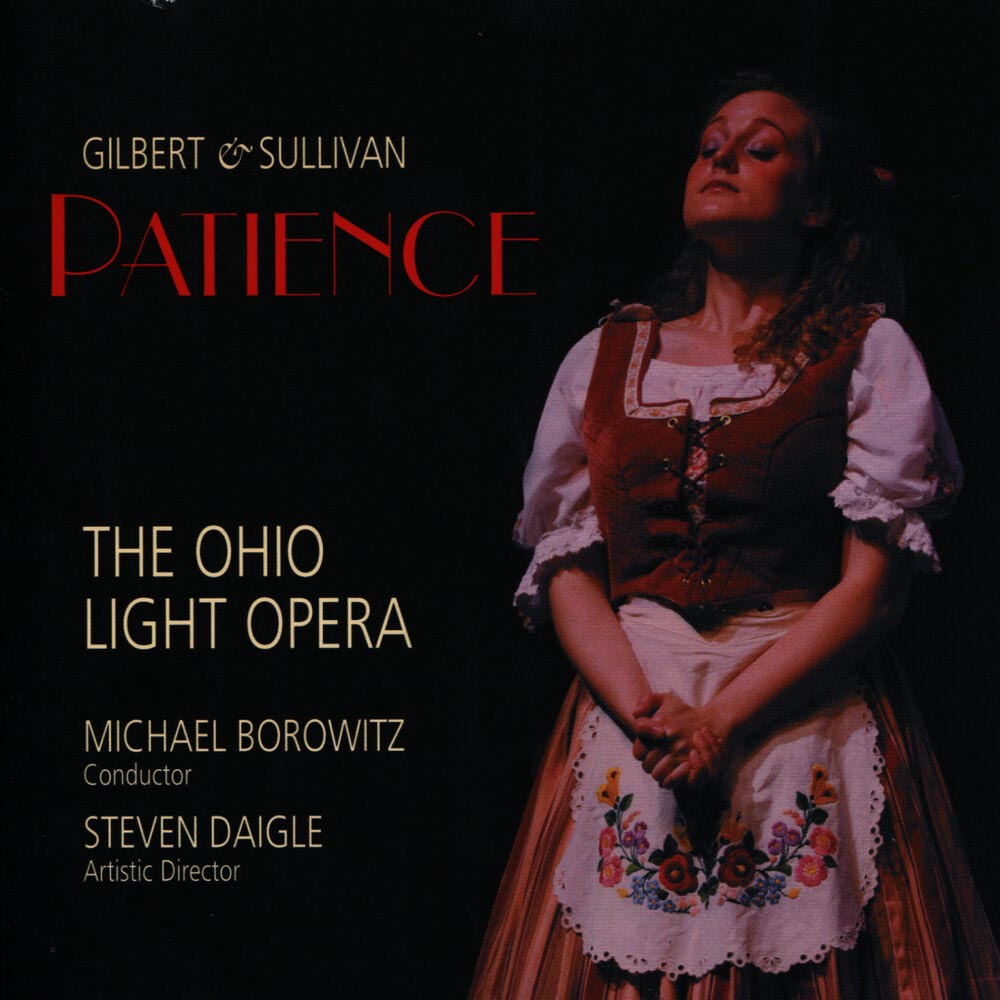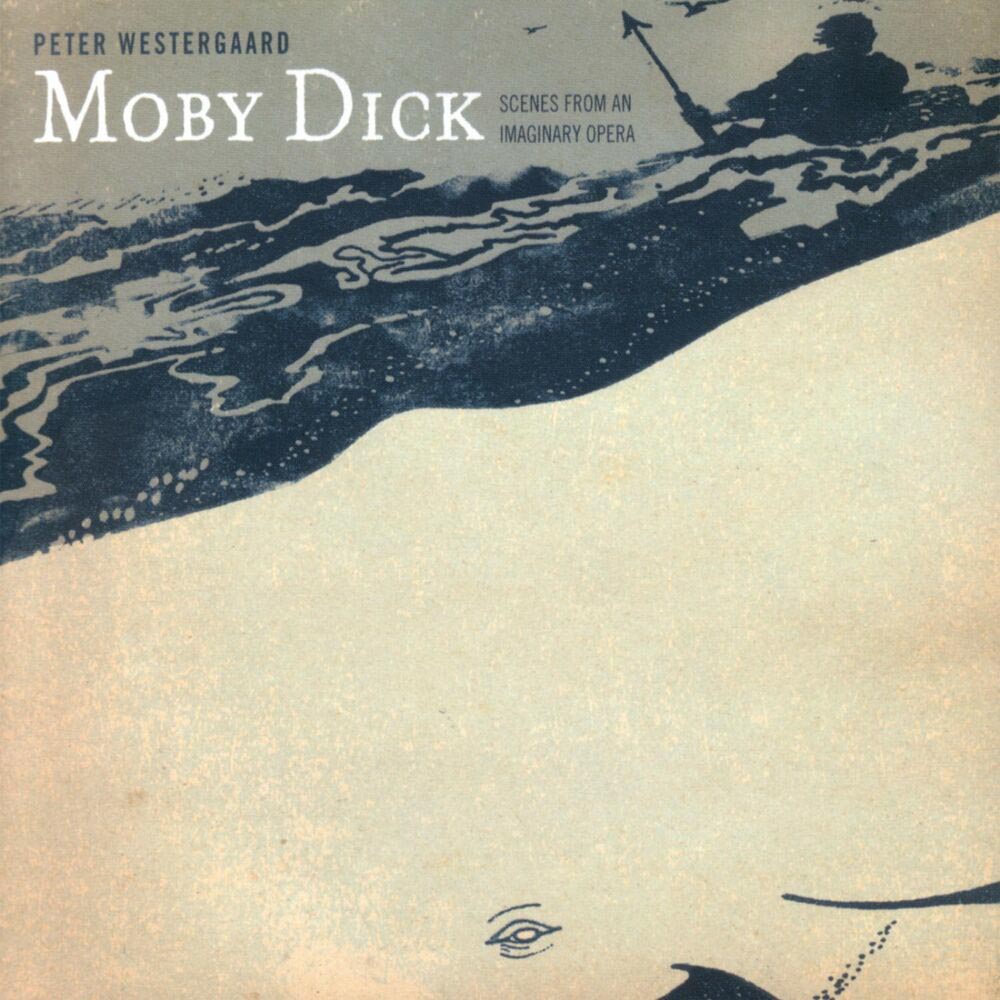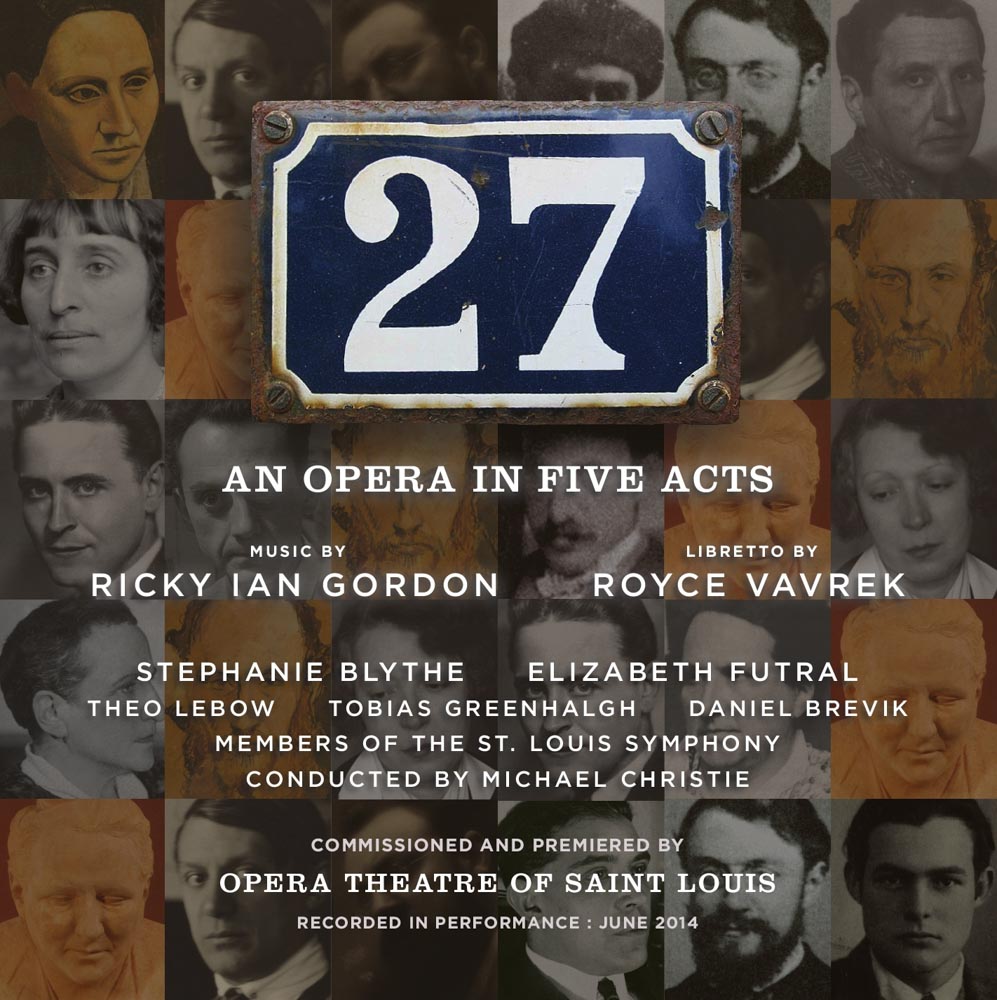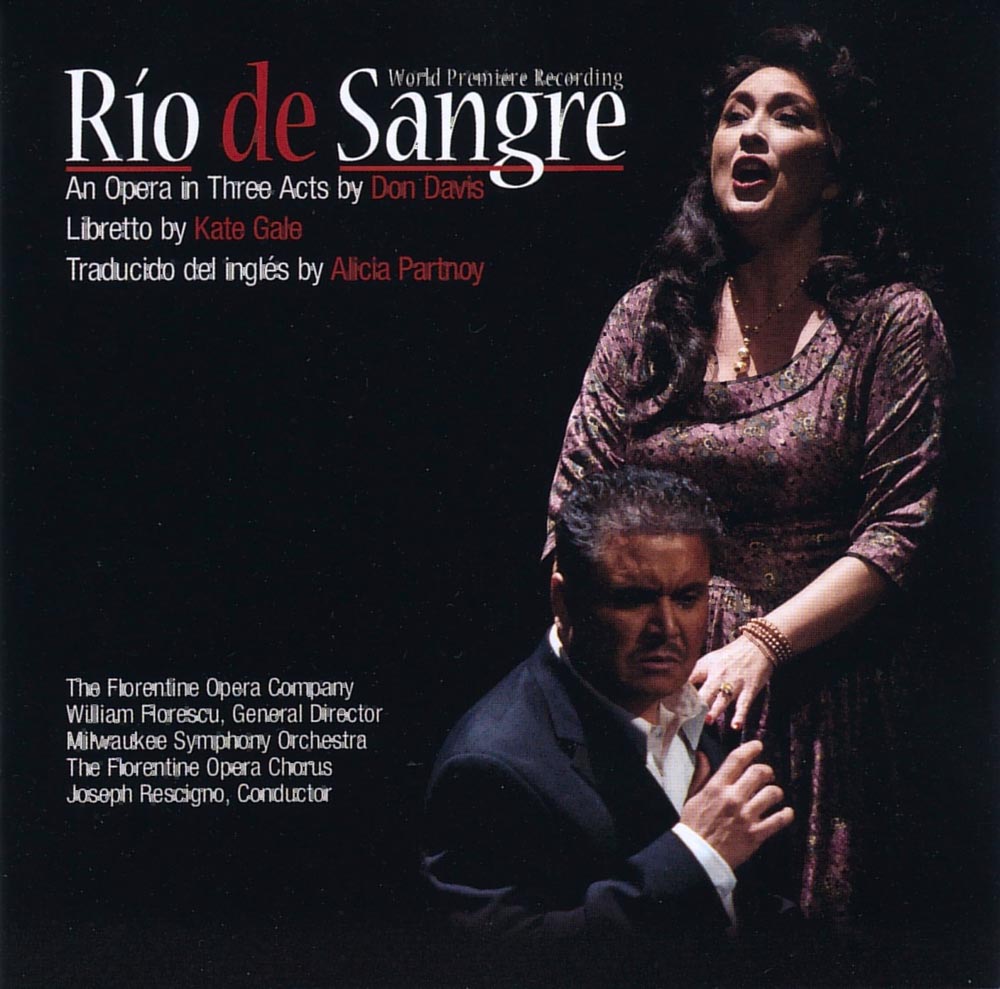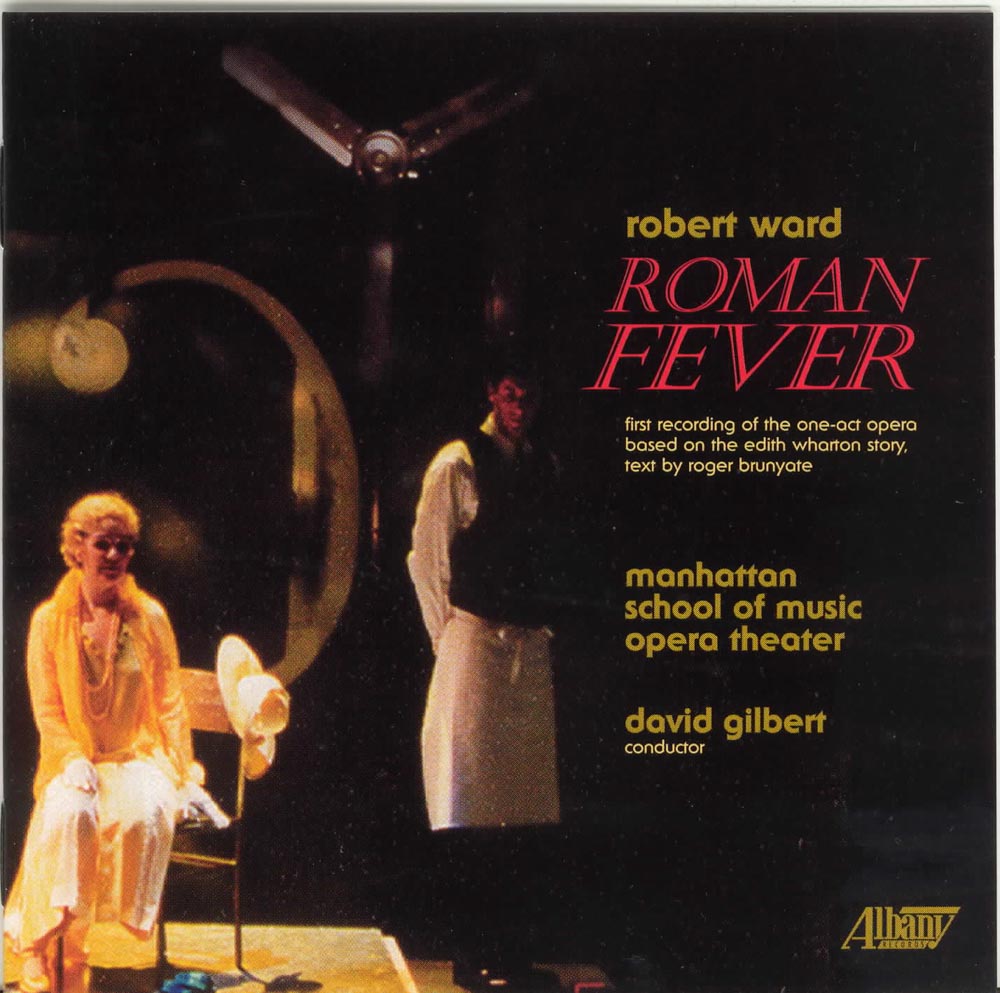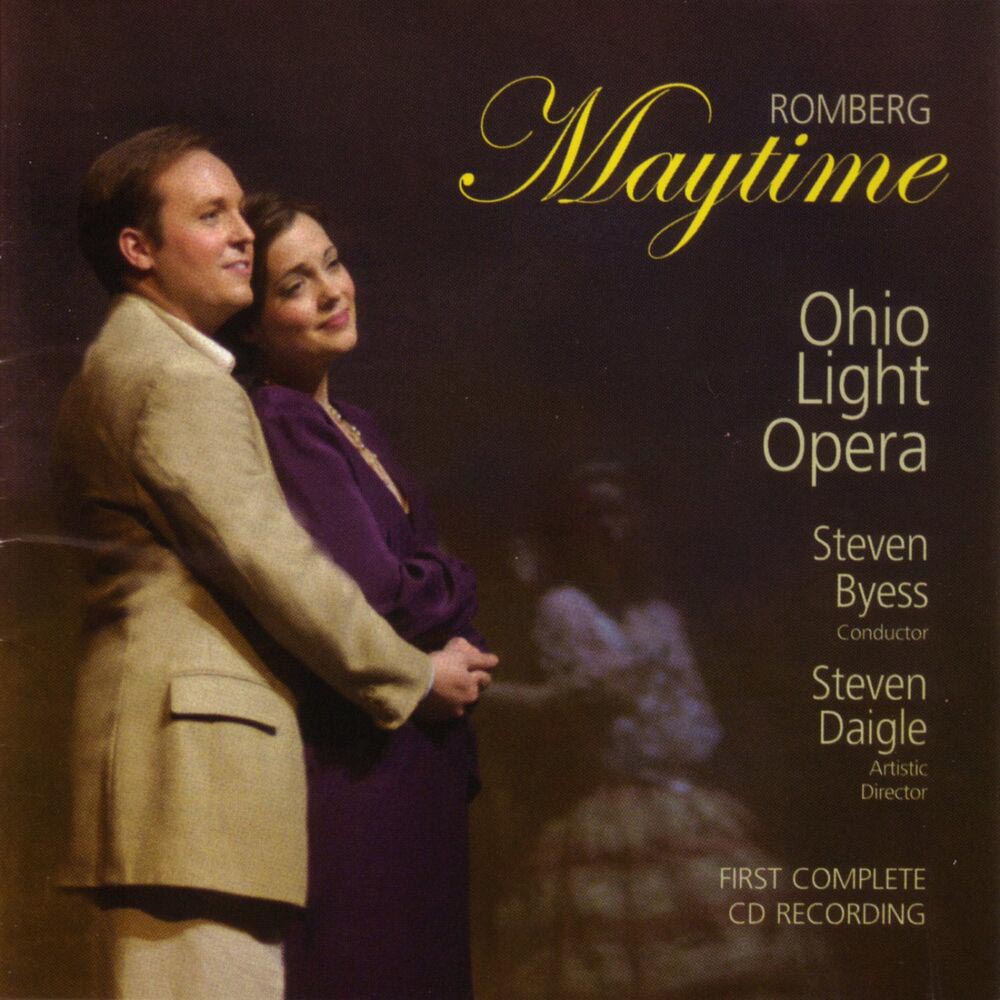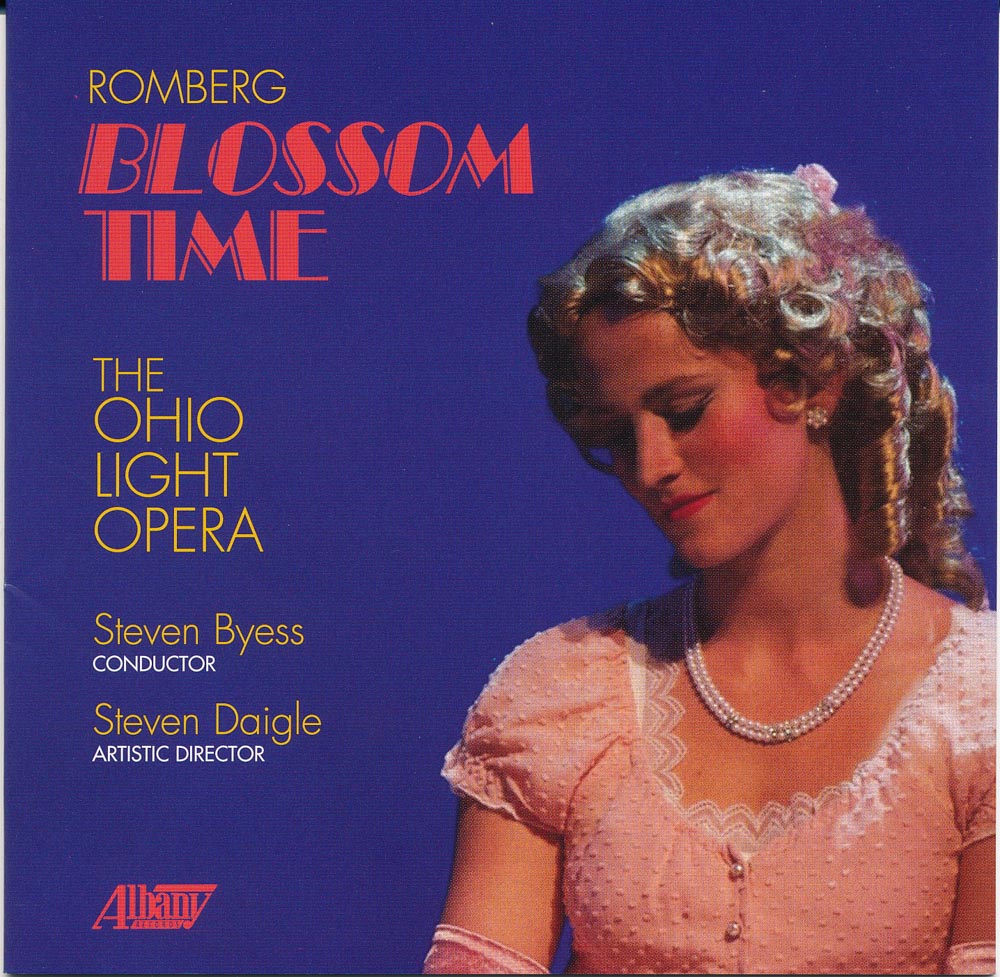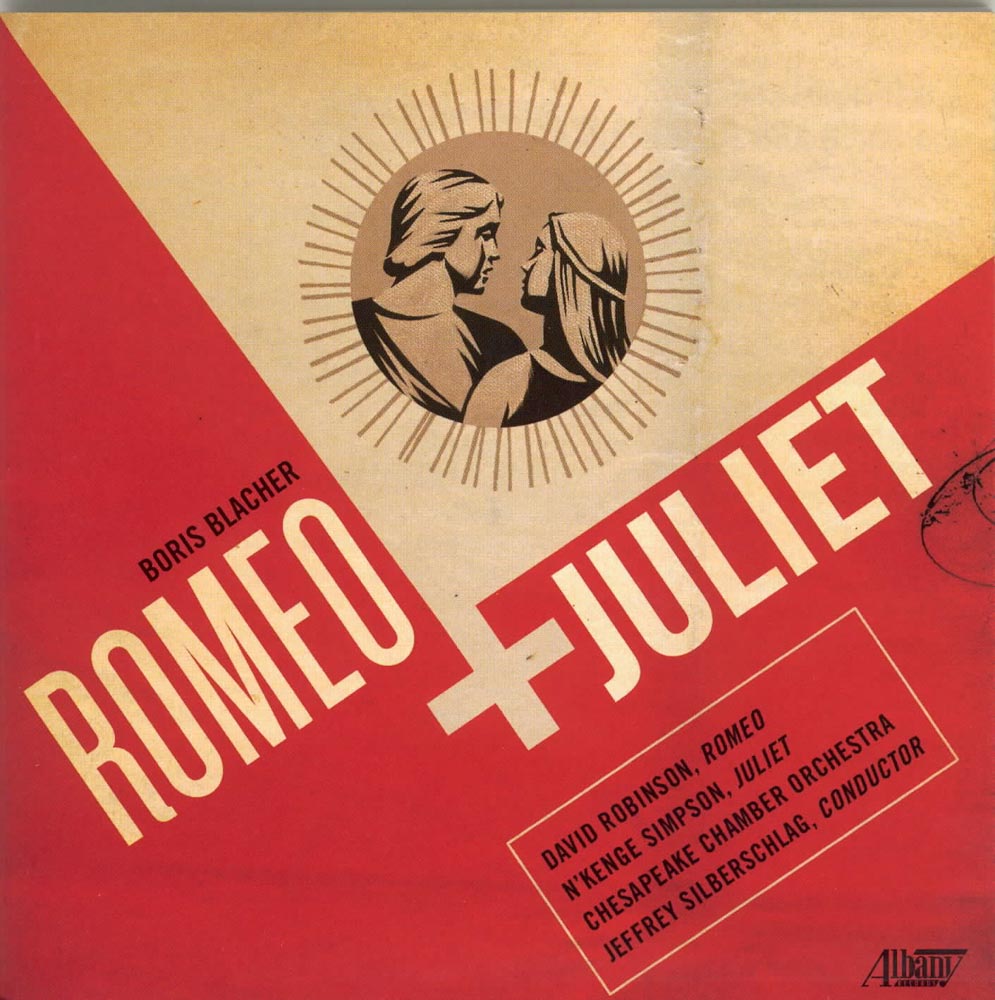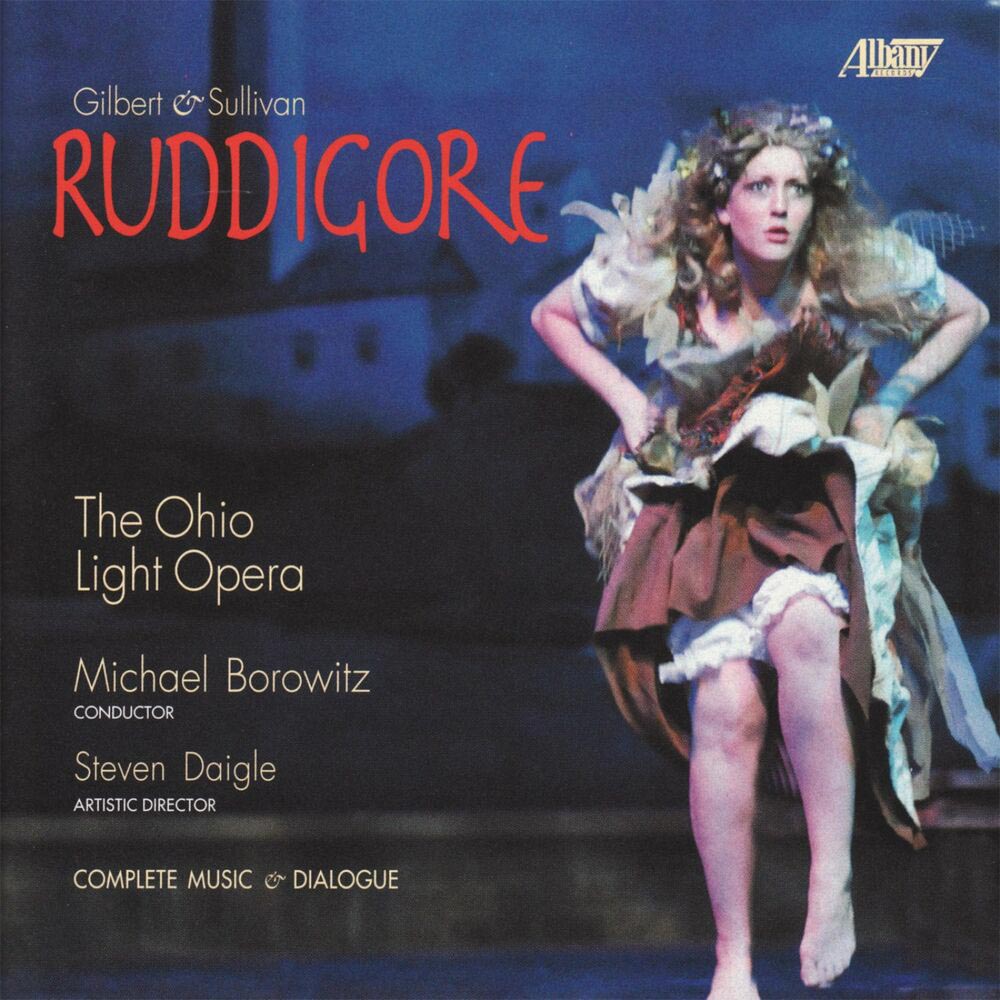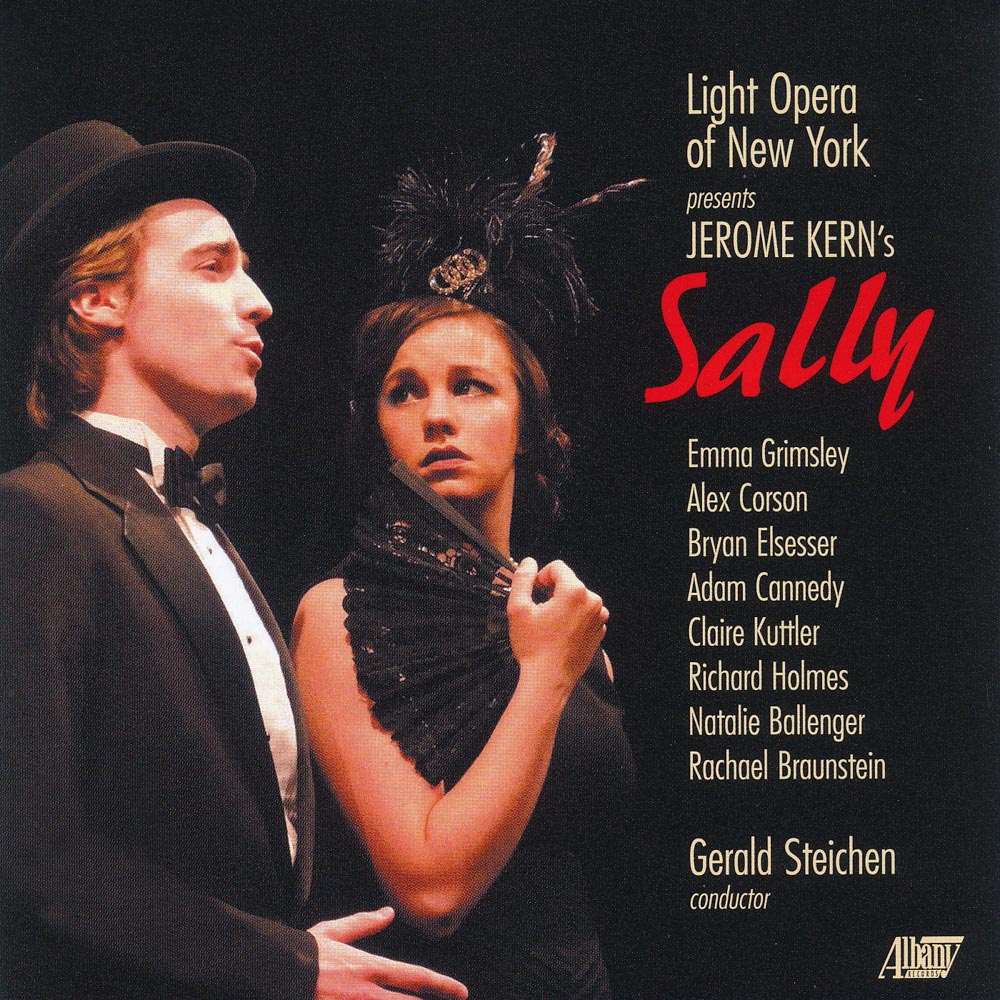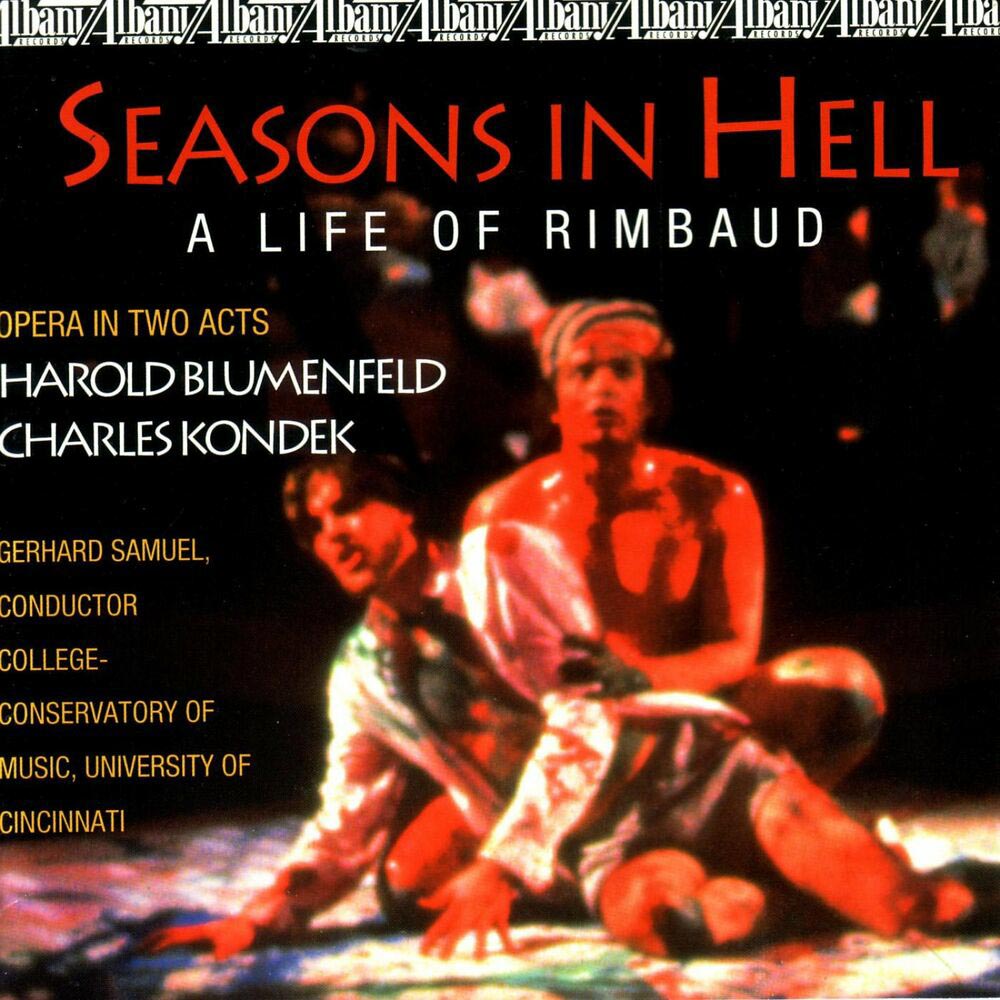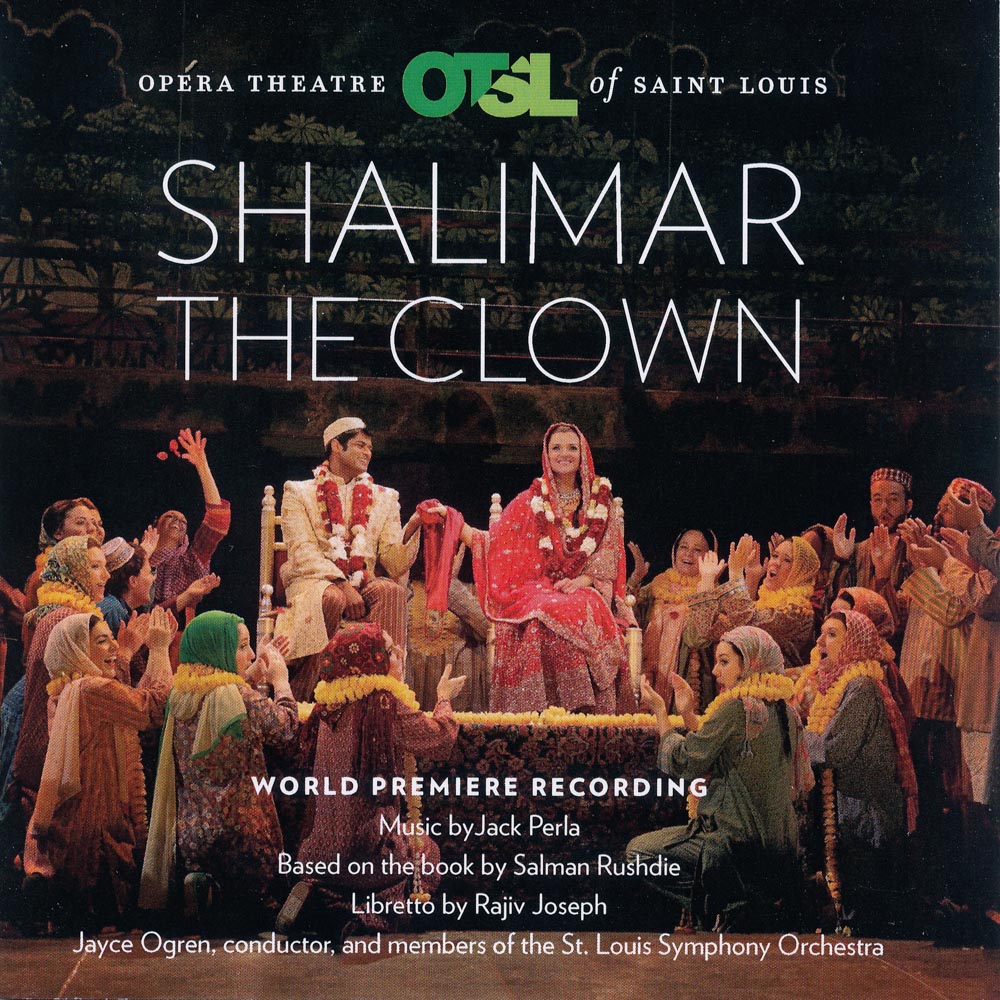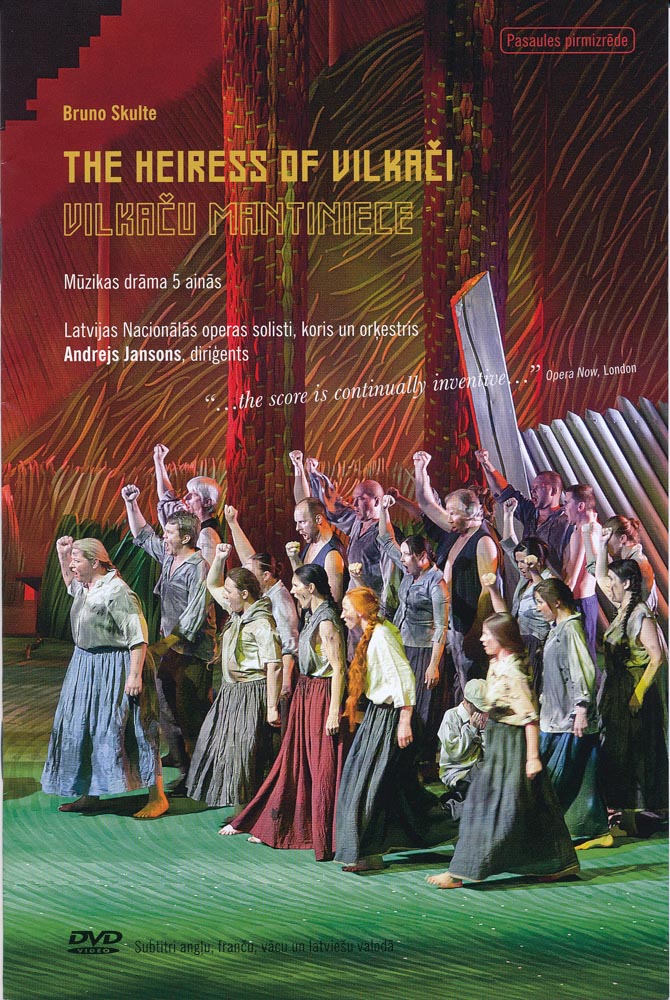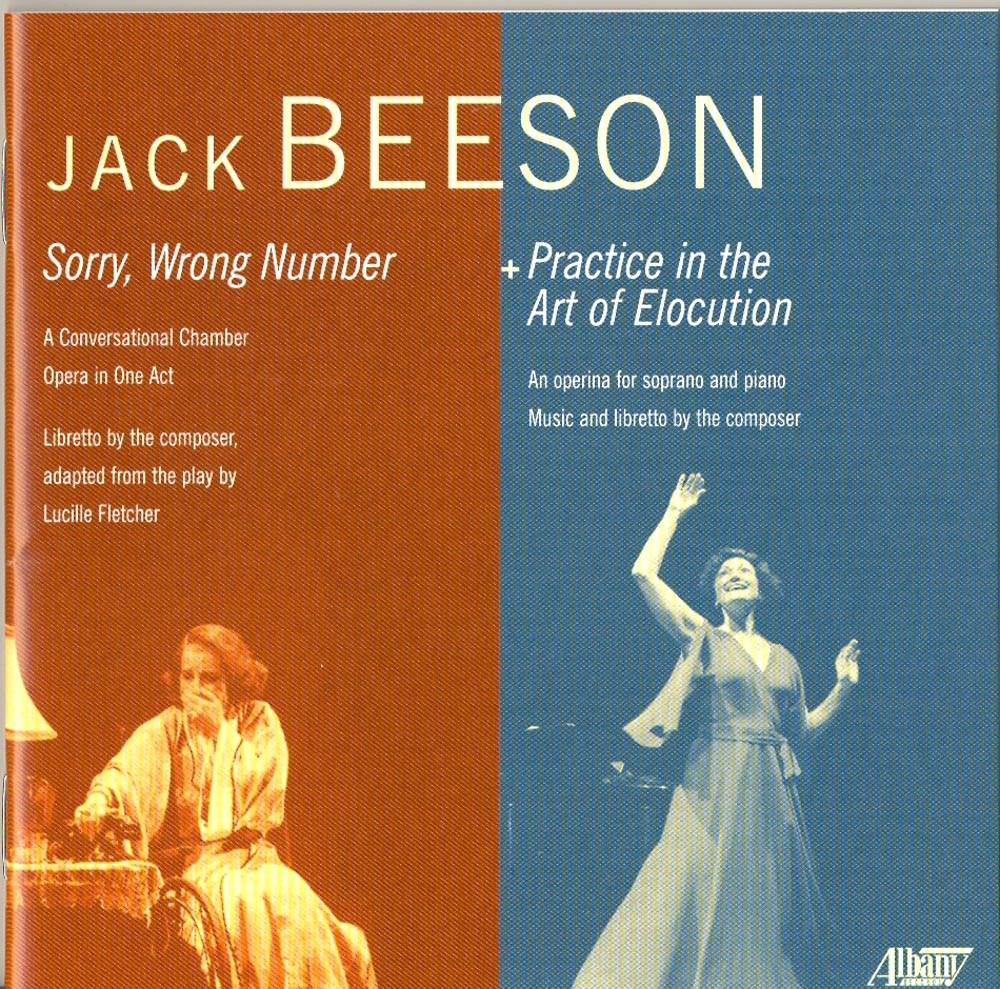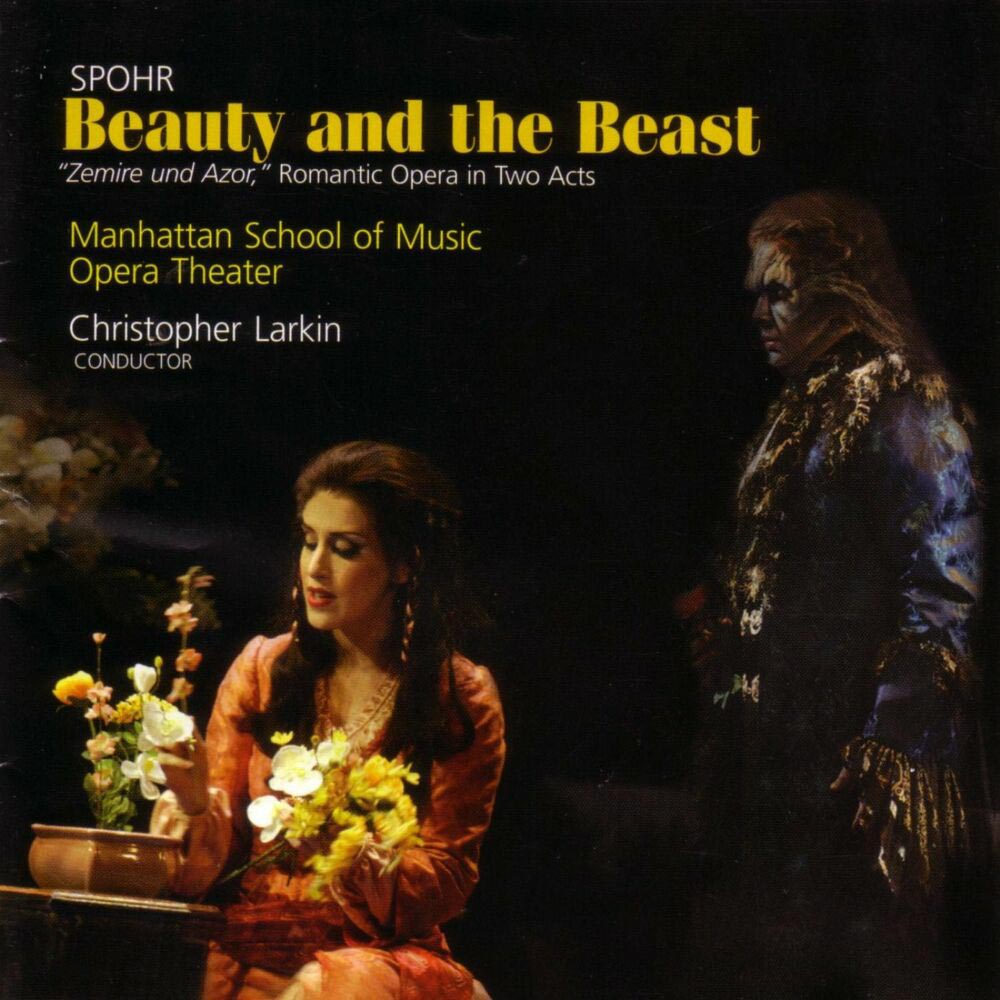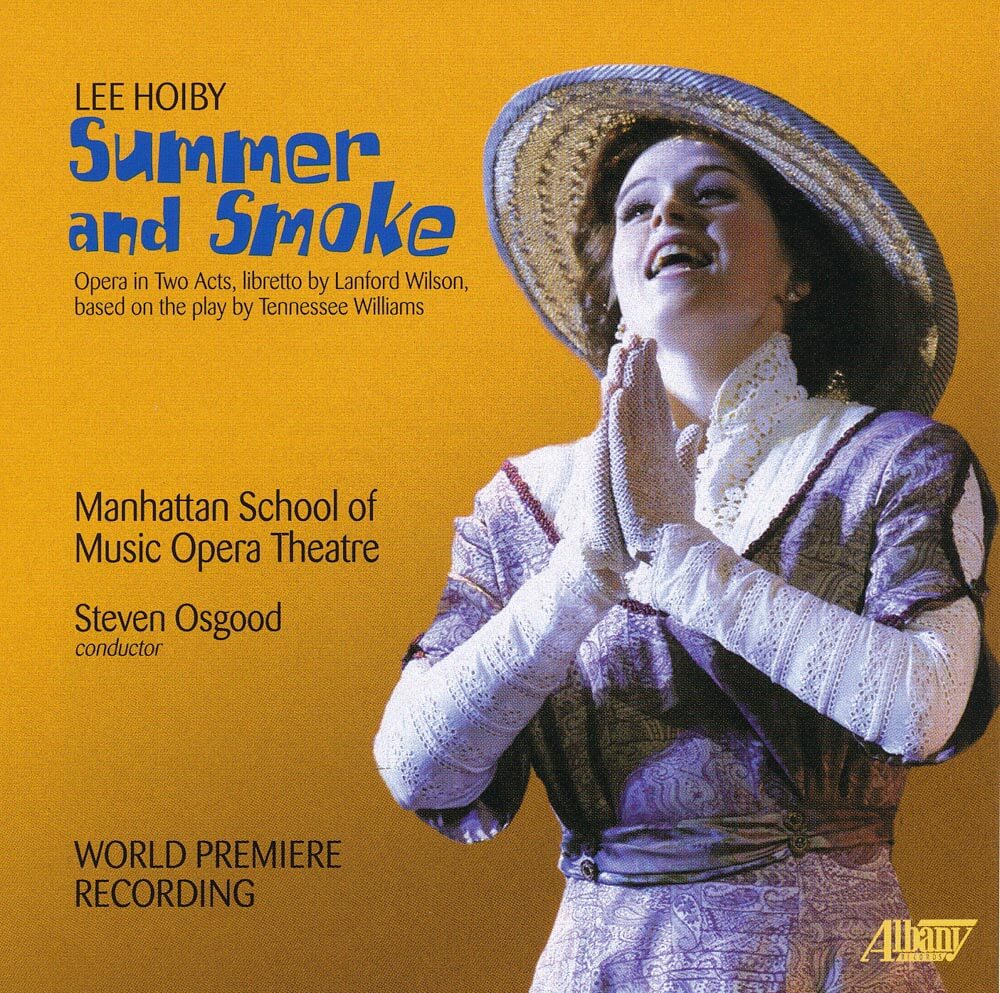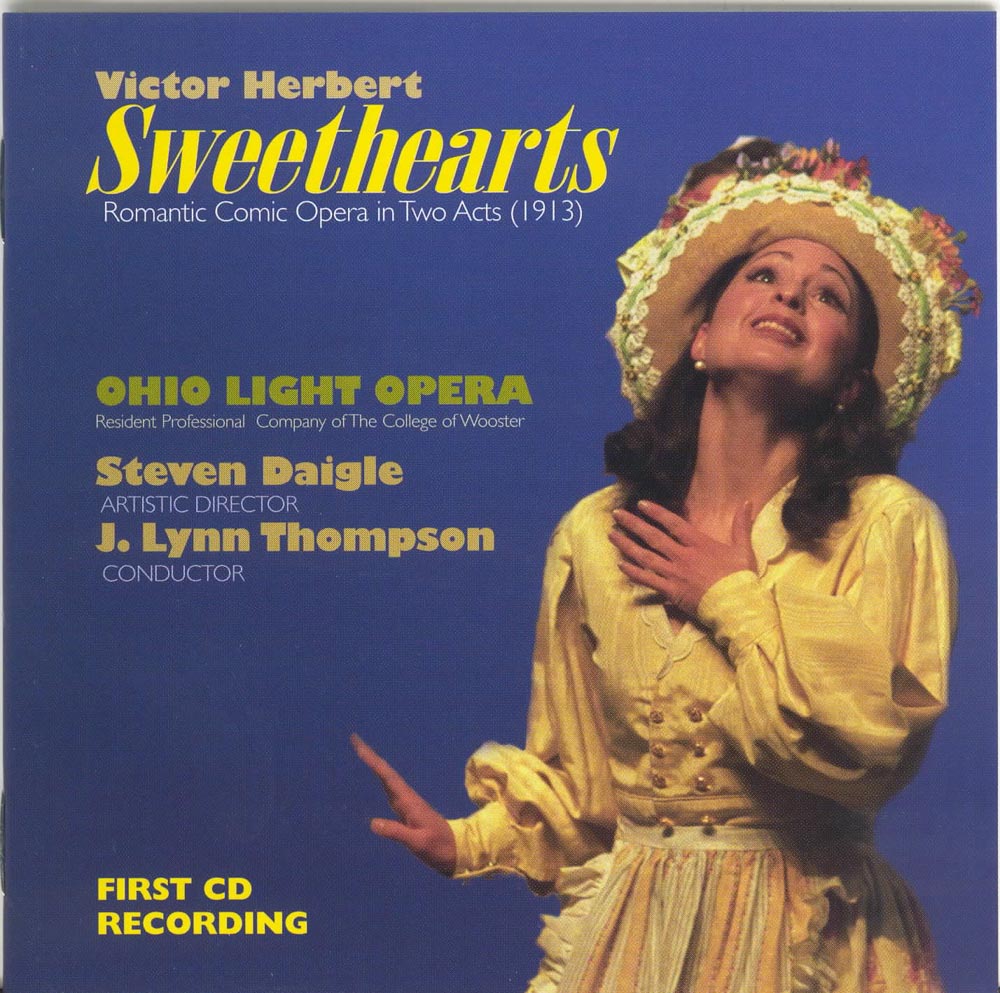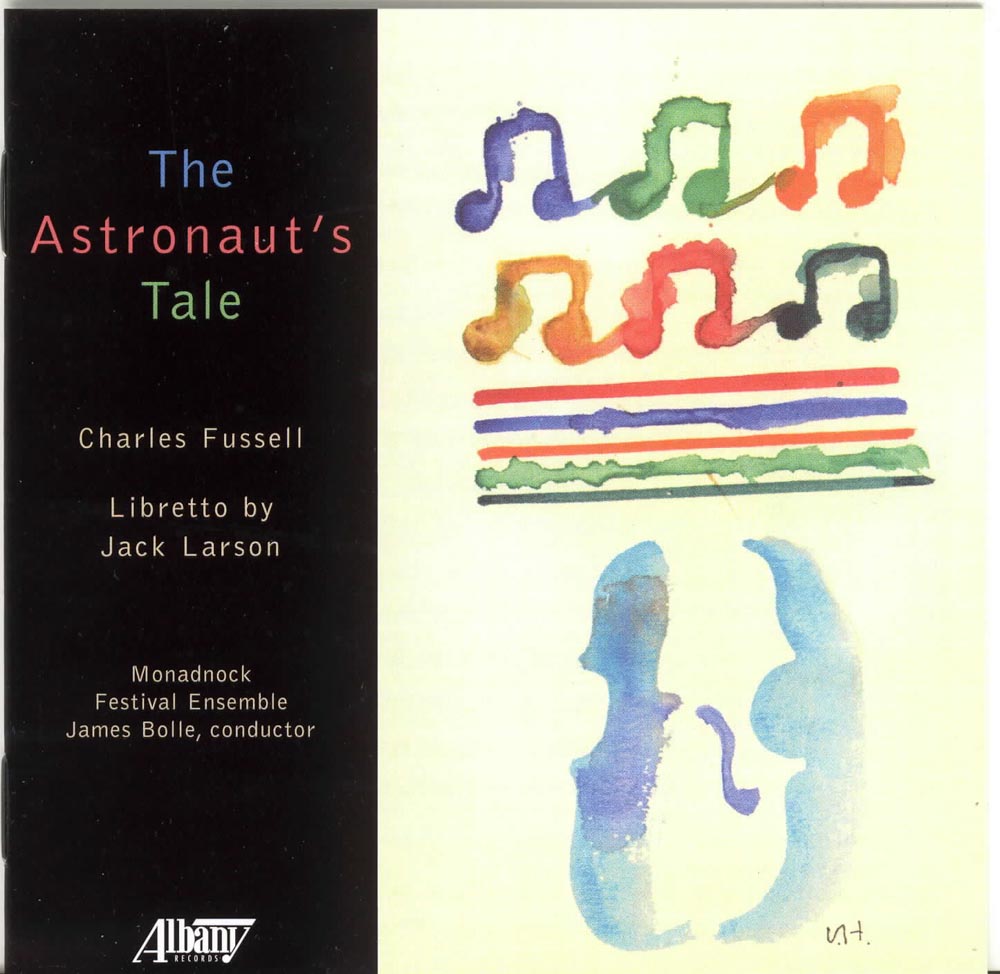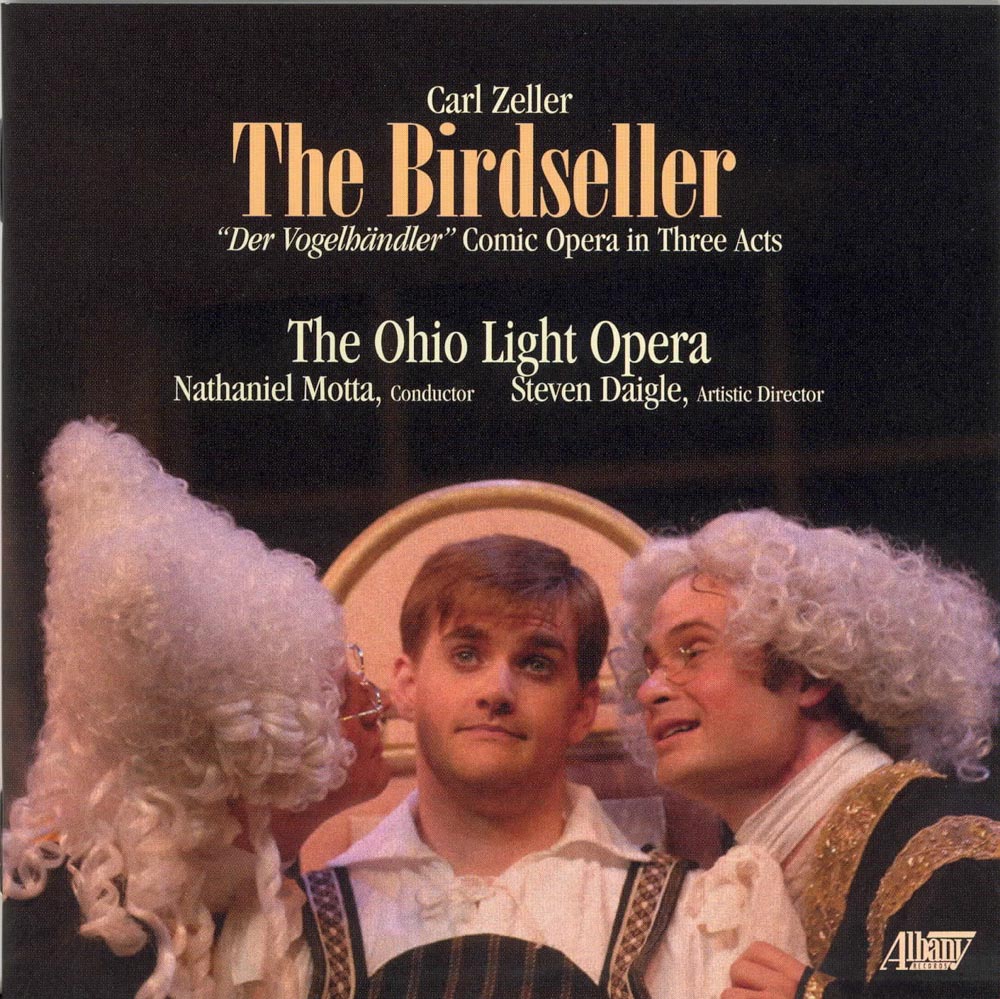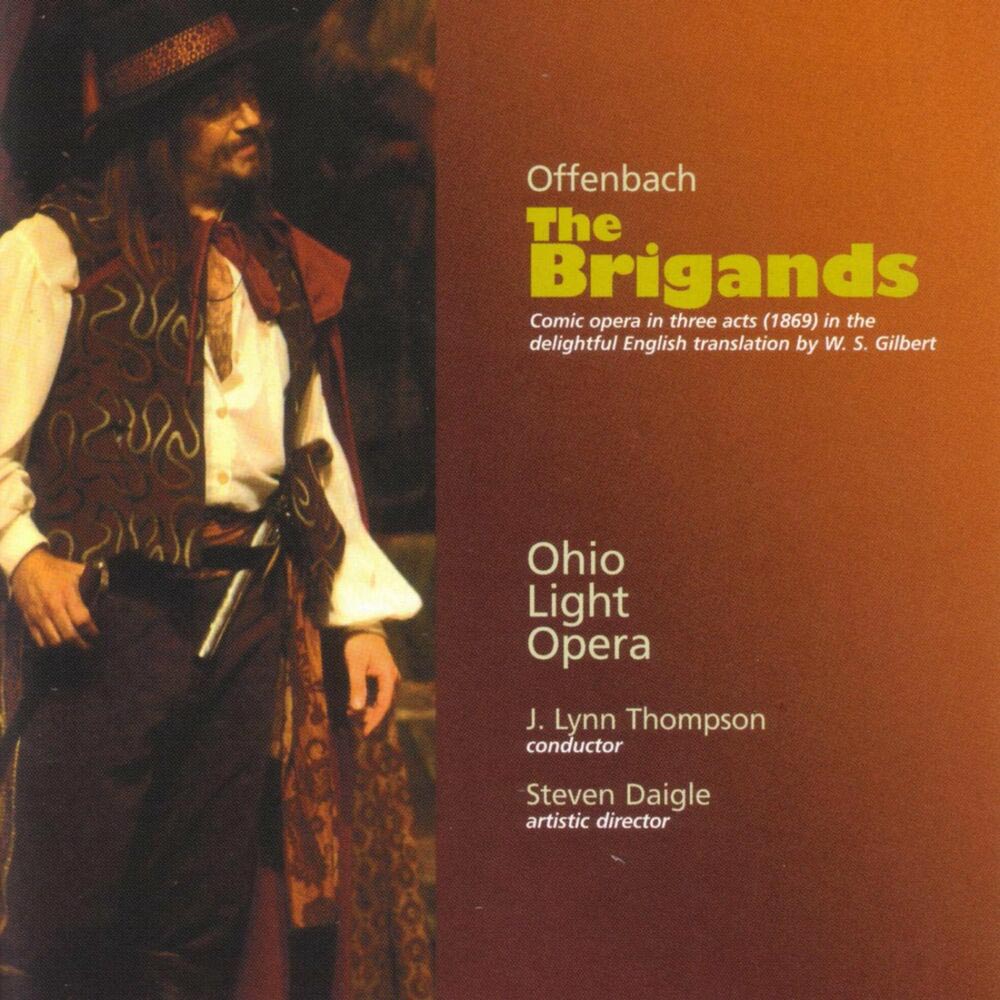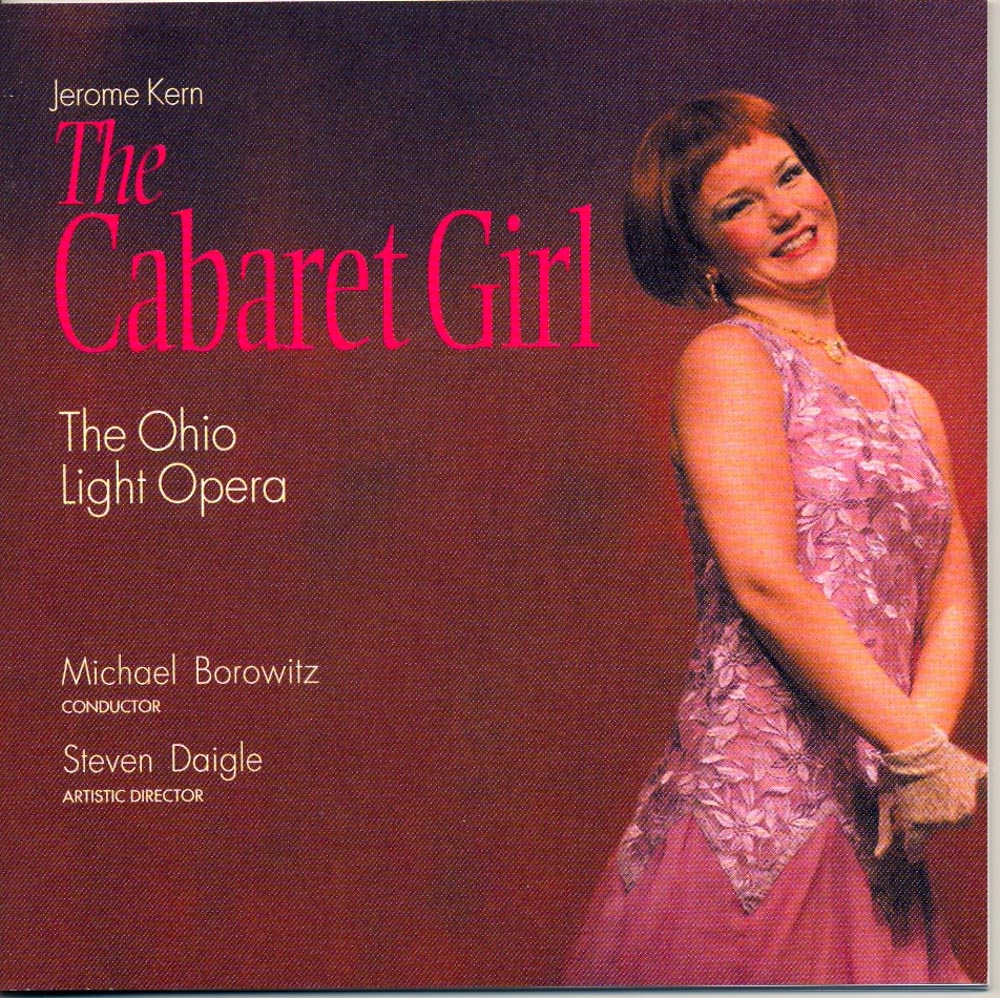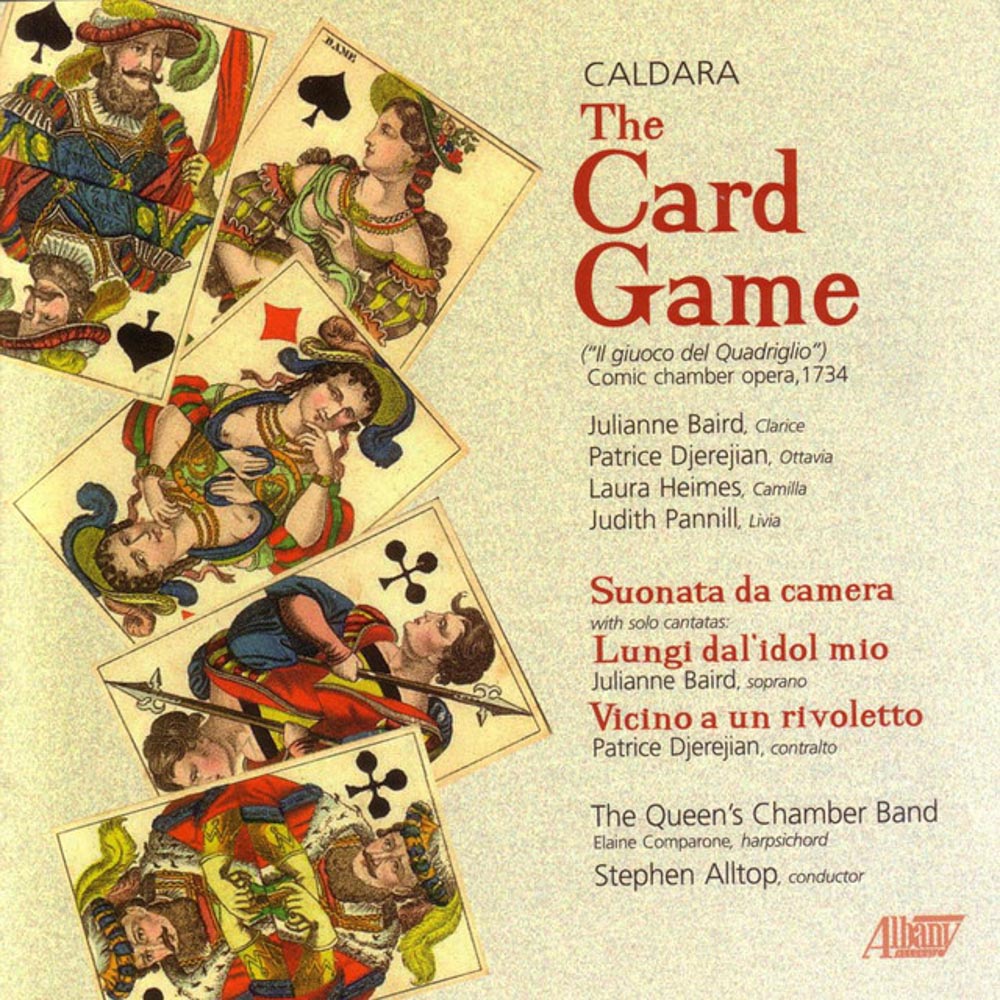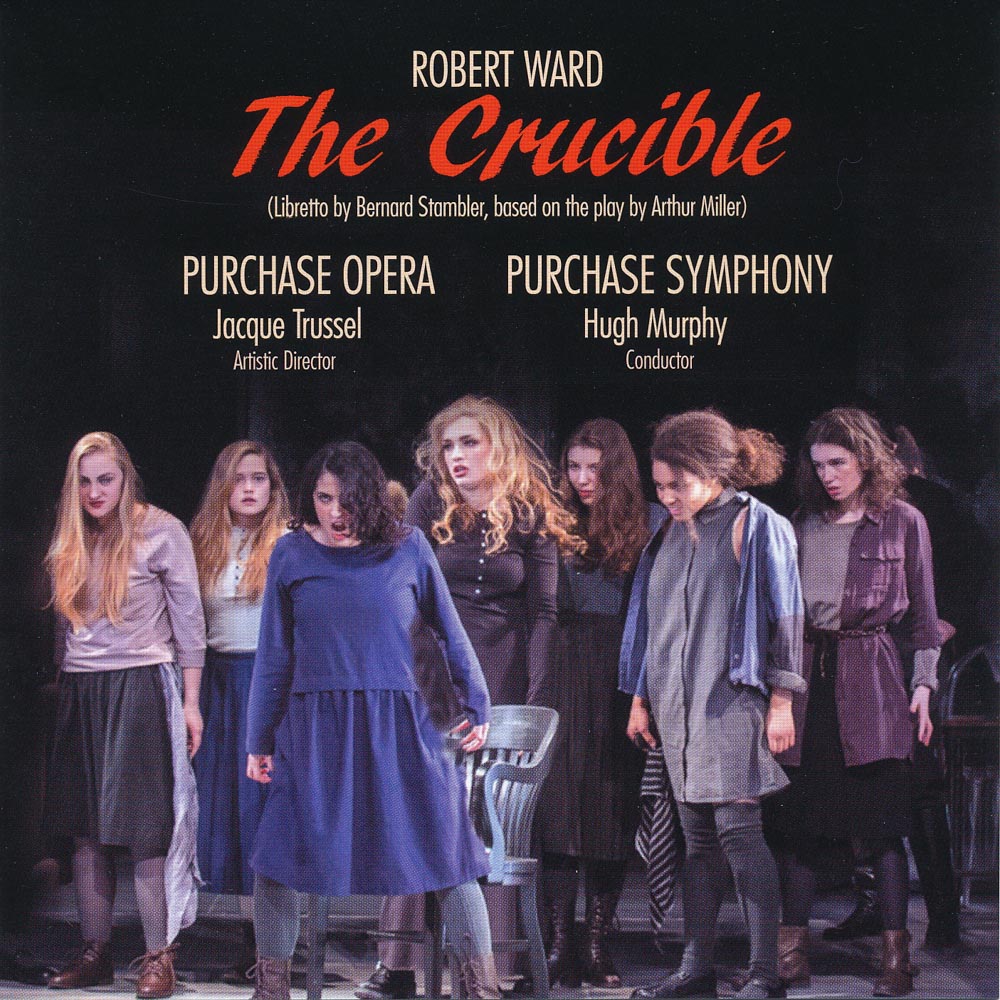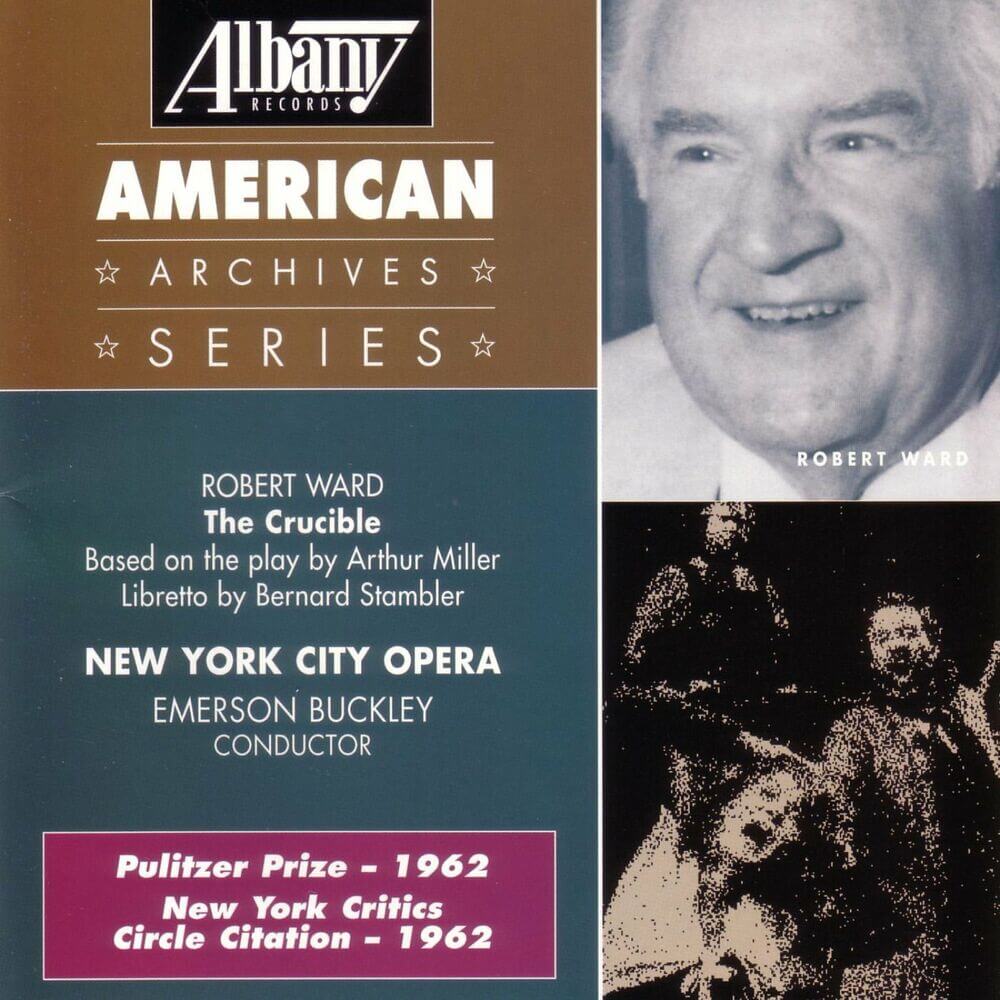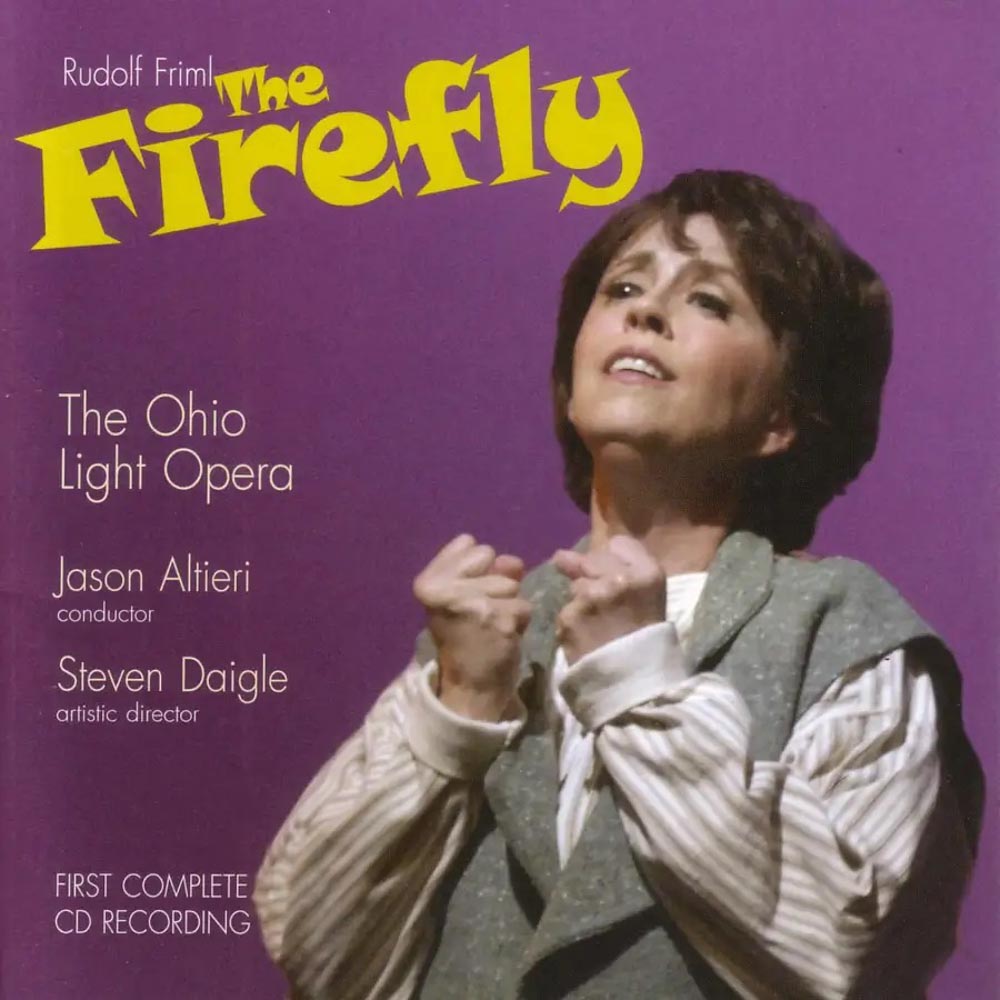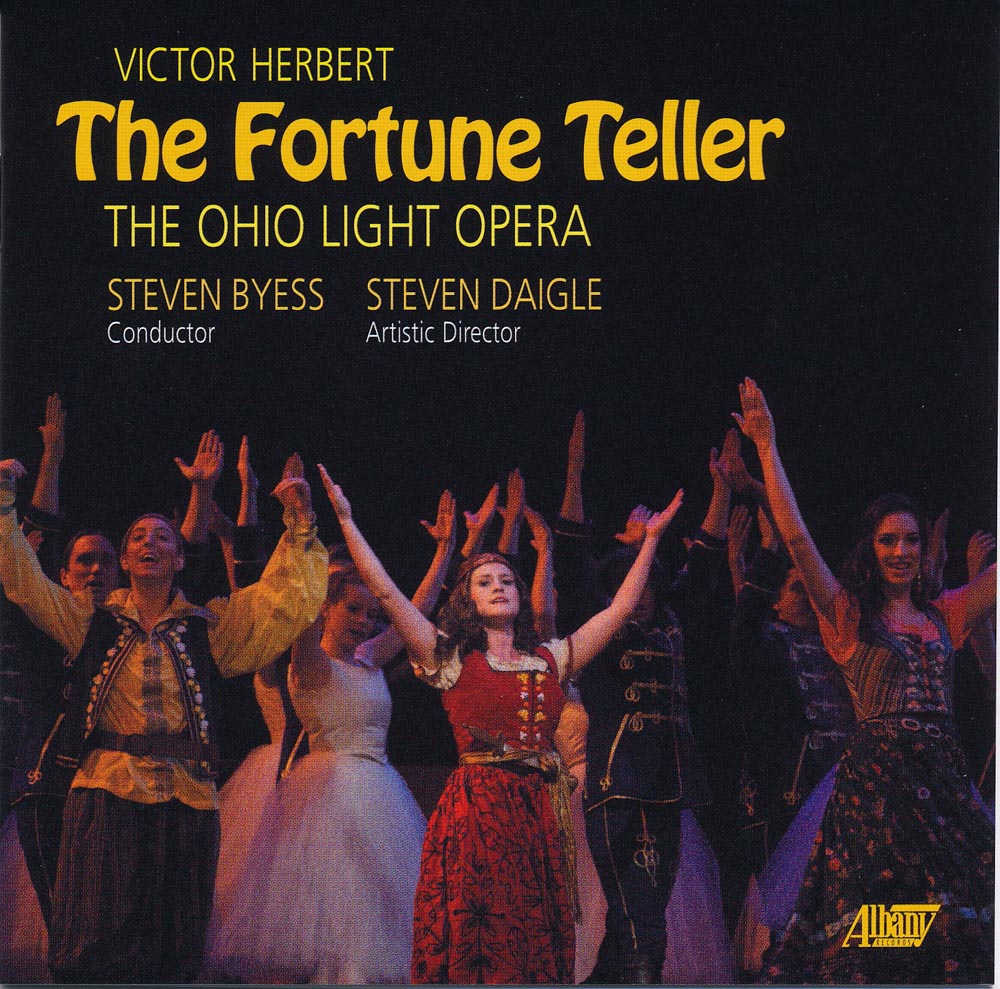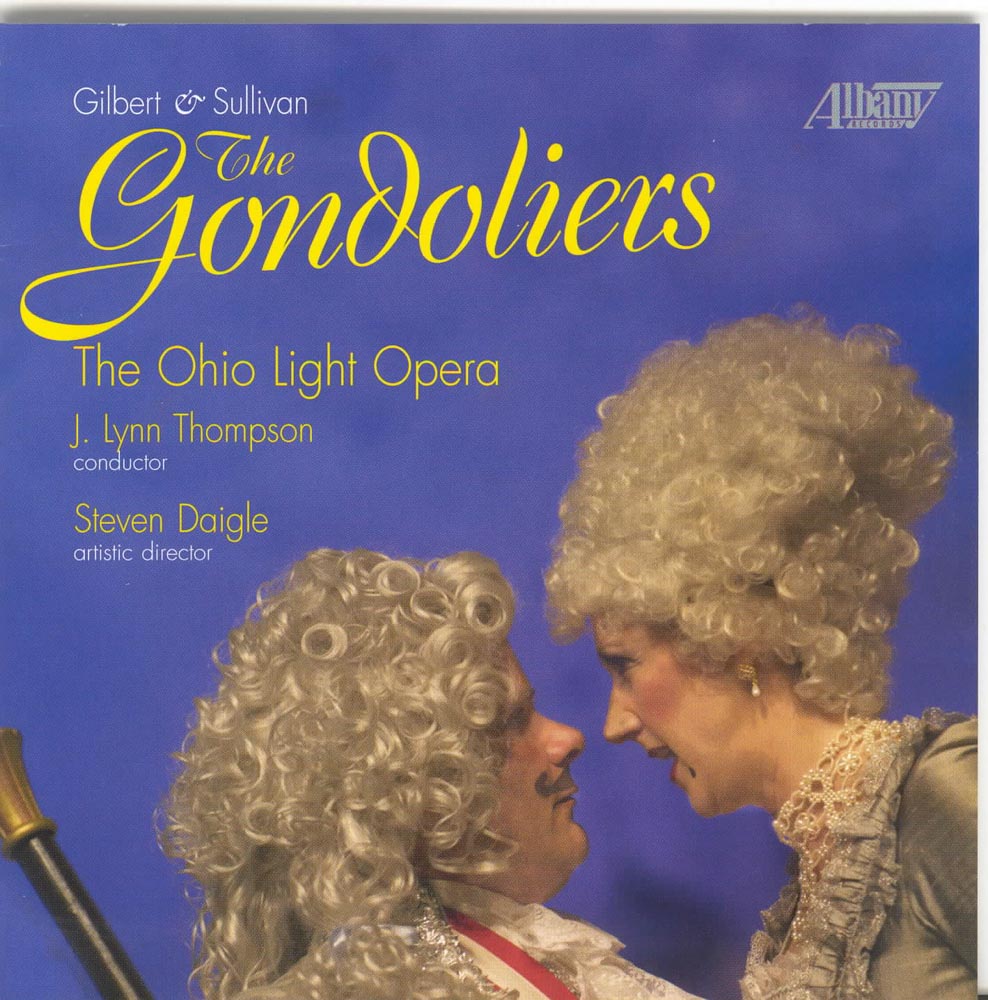Catalog #: TROY1241-42
Release Date: December 1, 2010OperaGilbert & Sullivan's hilarious and tuneful 1881 spoof of Oscar Wilde and the Pre-Raphaelite movement is presented with complete music and dialog by the Ohio Light Opera. Patience was the sixth of the 14 Gilbert & Sullivan collaborations. It played for 850 performances, moving to the Savoy Theatre, where it was hailed as the first theatrical production to be lit entirely by electric light.
Catalog #: TROY0806-07
Release Date: December 1, 2005OperaPeter Westergaard taught composition and theory at Princeton University from 1968 to 2001, and also directed the Princeton University Opera Theatre during this time. Moby Dick is his fifth opera, the others being Charivari (1953), Mr. And Mrs. Discobbolos (1964), The Tempest (1990), and Chicken Little (1997). As he writes about Moby Dick: "Melville's novel paints a vast canvas. But of the many stretches that might have made good scenes for an opera, I have chosen only those I deemed absolutely necessary to spinning the central yarn. Gone is Father Mapple's sermon, all that's left of Pip is his tambourine...there are a few brief glimpses of Queequeg, Tashtego and Daggoo." In terms of being imaginary, Mr. Westergaard recognizes the complexities of adapting the many elaborate scenes from the book into a viable stage presentation, especially the struggles of attacking the whale, etc. As he continues, "With a recording, of course, all these problems conveniently disappear as you, the listener, imagine from Ishmael's words and the music that surrounds them what Ishmael sees in his mind's eye as he tells us his tale." In essence, Mr. Westergaard has created the ideal opera for the recording medium.
Catalog #: TROY1098-99
Release Date: March 1, 2009OperaDominick Argento, considered by many to be America's pre-eminent composer of lyric opera, was born in 1927. He studied at Peabody and the Eastman School of Music. He is professor emeritus at the University of Minnesota, where he taught for 40 years. Although Argento's instrumental works have received consistent praise, the great majority of his music is vocal. This emphasis on the human voice is a facet of the powerful dramatic impulse that drives nearly all of his music.
Catalog #: TROY0623-24
Release Date: January 1, 2004OperaThe composer writes: "Somerset Maugham's short story Rain was suggested to me for an opera by Bob Brewer, who had been the stage director for the premieres of two of my operas in New York, Mary Dyer and Abigail Adams in which my wife Lynn had sung the title roles. Bob knew what kind of a dramatic story I would be attracted to and what Lynn's vocal and dramatic gifts would bring to the role of Sadie Thompson. I was fortunate to have been invited in the early 1990s to participate in an ASCAP four-week film scoring workshop in Los Angeles, getting insight into the focus and condensation of musical effects that later the Rain libretto demanded. I was also writing this opera for my wife who has vast operatic experience around the world, and had sung Minnie, the miners' saloon keeper in Puccini's Girl of the Golden West at the Metropolitan and elsewhere, a perfect background for her to give life to Sadie Thompson who struggles to extricate herself from her barroom world. The premiere of this opera took place in Alice Tully Hall in February, 2003."
Catalog #: TROY1549-50
Release Date: February 1, 2015Opera"27" An Opera in Five Acts, owes its origins to the friendship between soprano Stephanie Blythe and the artistic director of the Opera Theater of Saint Louis, James Robinson. They decided to commission one of Blythe's favorite composers, Ricky Ian Gordon, to create a new work for her. Gordon presented his idea of a fantasy on Gertrude Stein as a potential subject and "27" was born. 27 refers to the address of Stein's salon in Paris, 27 rue de Fleurus. Virgil Thomas said of that address that, "Every story that ever came into the house eventually got told in Alice's way, and [that became] its definitive version." Ricky Ian Gordon, long interested and perhaps obsessed with Gertrude Stein, had always wanted to write an opera about Stein and Alice Toklas. He found the perfect librettist in Royce Vavrek, a Brooklyn-based writer of opera, musical theater, and concert works. This recording was made at the world premiere performances of the work in Saint Louis.
Catalog #: TROY1296-97
Release Date: October 1, 2011OperaThis world premiere recording of Río de Sangre, a new opera by composer Don Davis and librettist Kate Gale, presents fictional characters and situations that offer a more general comment on political and historical events, aiming for a degree of universality. The action takes place in an unnamed country in the "Southern hemisphere" and the text is sung in Spanish, but the characters and events clearly echo conditions and crises from any place and any time. Commissioned by the Florentine Opera Company, Río de Sangre received its world premiere performance by the company in 2010. Composer Don Davis has enjoyed a successful and widely varied musical career, not only as a seminal and prolific composer of contemporary orchestral and chamber works for the concert stage, but also as a versatile dramatic composer and conductor of film and television music, including the feature film trilogy The Matrix, The Matrix Reloaded and The Matrix Revolutions.
Catalog #: TROY0712-13
Release Date: November 1, 2004OperaJames Stuart, the person in charge of preparing the new performance edition of Robin Hood writes: "The Ohio Light Opera production of Robin Hood brings my world of operetta full circle. As a lad a few years into his teens, I attended a performance of this work given by Louisiana State University. I had caught the opera bug a few years earlier when the boys' choir in which I sang was chosen to appear as acolytes in the Te Deum scene of LSU's Tosca. At that time, I didn't distinguish a difference between opera and operetta Ð to me they both meant orchestra, singers, sets and costumes. I soon learned that although the ingredients were the same, there are distinctions. There are patronizing persons who equate lightness of style and subject with lightness of quality. This, of course, is not accurate. The finest operettas may be of vastly superior musical quality to grand operas produced by more minor composers. To my mind, this is the case with Reginald De Koven's Robin Hood, generally referred to as the first great American light opera. But is it American? Although De Koven was born and died in this country, most of his formative years were lived in England and Europe. Born in Middletown, Connecticut on April 3, 1859, he moved to England with his family at the age of 11. He studied with among others, Franz von Suppe in Vienna and Leo Delibes in Paris. De Koven felt that light opera needed "to be as well sung in its way as grand opera," and composed for his singers in that manner. When Robin Hood was first presented critics generally wrote of "reminiscences of Sullivan and Offenbach." Like Sullivan, he wanted to write a grand opera. It is said that Sir Arthur Sullivan remarked with disenchantment while attending a performance of his own opera Ivanhoe. "...a cobbler should stick to his last." And so with De Koven. Richard Aldrich, theatrical producer and husband of Gertrude Lawrence wrote in The New York Times (March 11, 1917): "Such popularity as Robin Hood has had is not given to many comic operas to win and to keep so long."
Catalog #: TROY0505
Release Date: March 1, 2002OperaRoman Fever had its world premiere in Durham, NC in the Spring of 1993. Robert Ward, Pulitzer-prize composer and retired Mary Duke Biddle Professor at Duke University, composed the music for the opera based on the well-known short story by Edith Wharton. The librettist, Roger Brunyate, is a stage director for the opera department at the Peabody Conservatory in Baltimore. "Earlier," said Ward in an interview, "Roger told me he was speaking to all his composer friends about writing operas with predominantly female casts. His idea seemed a good one, since most university and conservatory opera groups are three-quarters women and one-quarter men, and opera casts are usually the opposite - mostly men, fewer women." Shortly after this, Ward happened to read Wharton's short stories, including "Roman Fever." "I thought, My God, what a story, so I contacted Roger to see if he'd like to write the libretto while I worked on the music." The title refers both to malaria, the disease which once flourished in the marshes near Rome, and, metaphorically, to the giddiness that strikes many who visit the romantic Italian capital. Despite dark elements, the composer describes his work as a "tragicomedy: no one dies. "The tragic element," says Ward, "lies in the thing that in our life we have failed to achieve: relationships, career, the thing that leaves a kind of ache inside throughout our lives." The score of the opera displays a number of interesting musical styles: the old-style Italian ballad, a jazz duet, an operatic aria and a soaring quartet where each woman expresses her individual thoughts. Said Ward, "I've never written anything so overtly jazzy as this duet in this show 'They Kissed our Hands'."
Catalog #: TROY0808-09
Release Date: October 1, 2005OperaThe composer of such Broadway hits as The Student Prince, New Moon and The Desert Song was born in Hungary, educated in Vienna and studied engineering. But his musical gifts were recognized, and he came to New York at age 22. In between menial odd-jobs, he made his presence known to the point where the Schubert brothers engaged him in 1914 to become their house composer, eventually producing 17 shows and hundreds of songs (many for Al Jolson) by 1917. That was the year that Maytime, based on a play by Walter Kollo, had its premiere. Romberg changed the locale from Europe to old New York, and the work was a great success and ran for nearly 500 performances. Though Maytime achieved great popularity as a 1937 Jeanette MacDonald/Nelson Eddy film, it only used two original Romberg numbers. Here is a chance to experience this tuneful, charming operetta of lost and found love in a sparkling performance, the kind we expect from the wonderfully talented Ohio Light Opera Company members.
Catalog #: TROY1401-02
Release Date: January 1, 2013OperaBlossom Time, Sigmund Romberg's delightful 1921 operetta, is based on the music of Franz Schubert and on that composer's touching love life. Blossom Time opened September 29, 1921 at Broadway's Ambassador Theater. The show played for more than 500 performances and became one of the longest-running musicals in Broadway history.
Catalog #: TROY1008
Release Date: March 1, 2008OperaBorn in China, son of a Baltic businessman employed by the Tsar, Boris Blacher was a true iconoclast, who traveled to exotic locales and studied architecture and mathematics but who, during the 1920's, took up music, writing works redolent of American jazz, which would get him into trouble after the rise of the Nazis. Yes, Blacher was another composer of "degenerate" music who did eventually write a genuine "hit" Ð the Orchestral Variations on a Theme of Paganini, a much-recorded piece. In recent years, more of his output has been released on CD, revealing a fascinating, original musical voice. This unique adaptation of Shakespeare's Rome and Juliet modifies the work in striking ways, omitting some characters, telescoping the action, even resorting to having different characters perform their lines simultaneously, creating an "overlapping dialogue" effect. Musically, the ensemble writing often bears a striking resemblance to Stravinsky's "L'Histoire du Soldat," perhaps a tribute from one master to another.
Catalog #: TROY1164-65
Release Date: December 1, 2009OperaGilbert & Sullivan's hilarious 1887 Gothic comic opera, complete with dialogue and music, was recorded at the 2009 Festival of the Ohio Light Opera. Originally titled Ruddygore, the name, which meant bloody gore, gave offense at the premiere and the more acceptable Ruddigore was substituted. Cat-calls sayings "Give us back the Mikado" during the bows prompted a substantial reworking of the action. Despite the initial reception, the show ran for almost 300 performances. The score, full of ingratiating melodies, also boasts some novel touches as well as the usual comic patter songs and tuneful ballads. The extraordinary music for the ghosts in Act II represents Sullivan at his most inspired.
Catalog #: TROY1638
Release Date: August 1, 2016OperaJerome Kern's 1920 Broadway hit, a Rags-to-Riches "Cinderella" musical, was created for Ziegfeld Follies star Marilyn Miller with book and lyrics by Guy Bolton, P.G. Wodehouse and others, is offered in a CD premiere recording, featuring the cast and ensemble of Light Opera of New York with Gerald Steichen, conductor.
Catalog #: TROY0262-63
Release Date: October 1, 1997OperaThis is a live recording of the world premiere of this opera which took place on February 1, 1996, in Corbett Theater, Cincinnati, Ohio. About himself, Harold Blumenfeld writes: "I was born in Seattle of musical parents, educated at Yale with Hindemith, in Zurich and at Tanglewood, where I trained with Leonard Bernstein and Boris Goldovsky. In the sixties, from my academic base at Washington University, I launched the Opera Theater of St. Louis, forerunner of the present company, focusing on early and contemporary works and training hundreds of young singers in the process. After a 1971 guest stint at Queens College, CUNY and a productive summer at Yaddo, I shifted gears from opera production to composition. There resulted a series of works based upon Rilke and Mandelstam, Blake, Sassoon, and Hart Crane, Verlaine and Baudelaire. Then with a shock, I discovered Arthur Rimbaud." Seasons in Hell is the result of this discovery. Charles Kondek wrote the libretto for the opera. In May 1997 he was awarded the Marc Blitzstein Memorial Award in Music Theater presented by the American Academy of Arts and Letters. Blumenfeld says: "In writing our Seasons in Hell, Charles Kondek and I have ventured into largely uncharted territory - a probing of the psyche and inner drives of a genius, and an attempt to convey the full sweep and splendor of his creations. And what creationswhat genius! Arthur Rimbaud remains literature's most astounding, most perplexing prodigy. At 19, after the production of the bulk of his writing (almost entirely unrecognized in his time), he beats the Saison en enfer out of himself in an act of agonized catharsis, programming an imminent and total renunciation of literature. But his self-amputation of poetry is not quite yet to be completed: over the next two years he goes on to pen some of the most transcendent of his Illuminations. At about 22, after having wrought what later would be regarded as an upheaval and renewal of French letters, he renounces it all and embarks upon a life of action. Ultimately, he makes it to Ethiopia, where he trades in coffee and guns. At 36, his second amputation - of a cancerous leg - takes place. Within the year, he dies." Seasons in Hell is a powerful listening experience. It will be especially appreciated by people who enjoy contemporary opera. Full libretto and extensive notes are enclosed.
Catalog #: TROY1129
Release Date: August 1, 2009OperaComposer Michael Dellaira and librettist Susan Yankowitz have written Chéri, a musical drama based on the novel by Colette. This recording consists of selections from The Actors Studio Workshop production in 2005. Dellaira chose his favorite musical passages without regard to whether they tell an abridged version of the story but listening to the selections gives one an accurate picture. Dellaira is currently composer-in-residence at The Center for Contemporary Opera and is at work on an opera based on Joseph Conrad's novel, The Secret Agent, with a libretto by J.D. McClatchy.
Catalog #: TROY1695-96
Release Date: June 1, 2018OperaRajiv Joseph's spare libretto, based on the book by Salman Rushdie, is full of gifts for an opera composer: love triangle with dancer, acrobat, and ambassador; vaudevillian rehearsal; over-the-top wedding; lonely hotel seduction; and Anarkali's dance -- a grand Khatak show-within-a-show. Rushdie's novel, not at all spare, is part Hindu/Muslim Romeo and Juliet, part Himalayan Paradise Lost -- a meditation on the personal as political, and an allegory of the danger of innocence. The Opera Theatre of Saint Louis commissioned composer Jack Perla to write Shalimar the Clown and this world premiere recording was made in 2016. Perla has steadily forged a reputation for his unique cross-fertilization of jazz, improvisation, and classical music. Librettist Rajiv Joseph is a New York-based playwright who has been called "daring, magnificent, and virtuosic." The recipient of numerous awards, Shalimar the Clown is Mr. Joseph's first opera libretto.
Catalog #: TROY1320
Release Date: April 1, 2012Opera"...Melodious and engaging..." "...a musically vivid theatrical debut..." "...the score is continually inventive..." These were some of the comments from the press on the world premiere production of Bruno Skulte's masterpiece, The Heiress of Vilkaci. This DVD is of the world premiere, June 23, 2011 and compliments the recording of the opera previously released by Albany Records (TROY944/45). Devoted to Latvian music, Bruno Skulte was one of the most prominent Latvian composers to flee Latvia and find refuge in exile. Born in 1905, Skulte studied at the Latvian Conservatory and worked as an organist, composer and artistic director of the Latvian Radio and the Liepaja Opera. He came to New York in 1949 and became organist for the Latvian congregation in New York. His 25 year tenure with the Latvian Evangelical Lutheran Church in New York boasts many achievements with his activities promoting Latvian music. The Heiress of Vilkaci is possibly his crowning achievement and offers a delightful listening and visual treat with this DVD. Sung in Latvian with English surtitles.
Catalog #: TROY1009
Release Date: May 1, 2008OperaPractice in the Art of Elocution, An operina for soprano and piano was adapted by the composer-librettist from The Standard American Speaker and Entertainer published in 1901, while Sorry, Wrong Number was adapted from the play by that name by Lucille Fletcher. Both of these witty one-act operas are given delightful performances by the cast and orchestra of the Center for Contemporary Opera. Beeson, inspired to write operas while still a teenager, has 10 operas to his credit, as well as music for orchestra, concert band, vocal and choral groups. In addition to composing, Beeson has had a distinguished career at Columbia University where he is the MacDowell Professor Emeritus of Music.
Catalog #: TROY0787-88
Release Date: July 1, 2005OperaIn his heyday, Louis Spohr reigned as the leading contemporary representative of the great German tradition: the heir apparent of Mozart in his mastery of the forms of absolute music, particularly the symphony and the string quartet. As a professional violinist, Spohr was essentially self-taught, diligently studying the music of Haydn and Mozart in the 1790's. His initial concentration was composing for his own instrument, eventually writing fifteen concertos for the violin. He is also credited for being the first conductor to use a baton (albeit in rehearsals only) and make the use of reference letters in scores and parts (i.e., "we'll begin at letter C.") Spohr's style reflects the melodic influence of Mozart and an interest in more advanced harmony, resulting in an output that includes nine symphonies, several clarinet concertos, thirty-six string quartets, an octet, a nonet and much more. He also composed several oratorios, one of the most important being The Last Judgement (1826). Among his many operas were Faust (1813), considered a landmark in the path to German Romantic opera, and his most enduring work, Jessonda (1823). On the basis of Faust's popularity, Spohr was hired in 1817 to become director of the Frankfurt Opera. After discarding plans for an adaptation of the medieval story The Black Huntsman (Carl Maria von Weber had "beaten him to the punch" by adapting it as Der Freischutz), Spohr tackled the famous legend of Beauty and the Beast, as written by poet Johan Jakob Ihlee based on a four-decade-old French libretto, Zemire et Azor, originally meant for French composer Andre Gretry. In his score, Spohr aimed at something lighter and more winsome than Faust, a melodically attractive opera with some fashionable Rossinian elements that went on the receive performances throughout Germany and remained at least on the fringes of the repertory during most of the 19th century. The opera is cast in two acts, divided into seventeen numbers. The first performance was given under his direction on April 4, 1819. Needless to say, here is a story that has been passed down through many forms and to many audiences over the years, whether we speak of the classic French film based on Jean Cocteau's adaptation or the wildly popular Disney animated movie. Spohr's wonderfully melodic score combines with this beloved tale to provide a memorable listening experience for both aficionados of Romantic Opera and those who love the sheer fantasy of Beauty and the Beast.
Catalog #: TROY1272-73
Release Date: June 1, 2011OperaThis is a world premiere recording of Lee Hoiby's 1971 two-act opera, with libretto by Lanford Wilson, based on the play by Tennessee Williams. Lee Hoiby, who died on April 8, 2011, was best known as a composer of operas and songs, although he was a child prodigy as a pianist, studying at the University of Wisconsin with Gunnar Johansen and Egon Petri. But on the verge of a career as a concert pianist, he received a scholarship to study composition with Gian Carlo Menotti. His immense contribution to American music, particularly opera and song repertoire is recognized by American singers everywhere. His style is an elegant and unobvious bridging of the lyrical works of Verdi and Gershwin.
Catalog #: TROY0546-47
Release Date: October 1, 2002OperaVictor Herbert conducted the first performance of his delightful two-act operetta Sweethearts in Baltimore, after which the show was overhauled and shortened before spending five weeks in Philadelphia and another five in Boston. Anticipation of the New York premiere of the work (on September 8, 1913 at the New Amsterdam Theater) was heightened by advertisements proclaiming that Christine MacDonald (whose name was printed in larger type than Herbert's) would be the star.
Catalog #: TROY0616
Release Date: November 1, 2003OperaComposer Charles Fussell was Artistic Director of New Music Harvest, Boston's first city-wide festival of contemporary music and Co-Founder and Director of the New England Composer's Orchestra. He is currently a member of the Composition faculty at Boston University. The composer writes: "The Astronaut's Tale was mostly written during a generous two month fellowship at Yadoo in Saratoga Springs in June and July of 1996, and was completed the following winter. It is conceived as a numbers-opera; arias, duets, trios, with preludes and interludes, all connected by a narrator. The story traces a young man's life from his first experience of loss, his dog killed by a car, the appearance of a mysterious Einstein-like guide, his youthful desire to become an astronaut, marriage, and the fulfillment of his ambition. The setting is our own time with its confrontation of science and religion. The opera concludes with a meditation on the nature of the cosmos and our experience of life and death within."
Catalog #: TROY1012-13
Release Date: March 1, 2008OperaCarl Zeller, after service in the Vienna Court Chapel Choir, studied both composition and law and earned his doctorate in law from Graz University in 1869. He spent most of life in government service, writing music in his spare time. Although Zeller composed several works for the musical theatre, his reputation rests mainly on The Birdseller, which had its premiere in 1891. It has a familiar boy-meets-girl plot, set in that never-never land of operetta where mistaken identities are as common as pine trees and nightingales sing on cue. The Birdseller has one of the most captivating scores ever written. Its best-known melody is "Roses in Tyrol," the magnificent song and ensemble that climaxes Act I. One of the most popular productions of the Ohio Light Opera in the 1990s, this 2007 revival will certainly delight listeners long familiar with the score as well as those who are discovering it for the first time!
Catalog #: TROY0660-61
Release Date: May 1, 2004OperaHere we present the first complete CD recording with William S. Gilbert's English translation of Jacques Offenbach's 1869 comic masterpiece. Les Brigands achieved resounding success just as the Second Empire came to an end. Henri Meilhac and Ludovic Halevy supplied Offenbach with a cheerfully amoral libretto that presents theft as a basic principle of society, not an aberration. The forces of law and order are represented by the bumbling carabinieri, who always arrive too late to capture the thieves. The carabinieri's exaggerated attire delighted the Parisian audience during the premiere at the Varietes on December 10, 1869. Only the outbreak of the Franco-Prussian War in the following months dampened the festivities. W.S. Gilbert's 1871 English adaptation for Les Brigands premiered on the London stage in 1889, starring Lillian Russell in the role of Fiorella. In his typical curmudgeonly fashion, Gilbert disparaged his own work and attempted to prevent use in London of his English version Ð happily to no avail. His arch lyrics give the Offenbach work a uniquely hilarious quality, delightful to an operetta audience happy to accept a rough-and-tumble pirate band speaking impeccable, drawing room English while describing dastardly deeds to gavottes and musical romps in three-quarter time.
Catalog #: TROY1103-04
Release Date: February 1, 2009OperaJerome Kern wrote The Cabaret Girl at the suggestion of London producer George Grossmith who, teaming with famed literary figure P.G. Wodehouse, provided the book and lyrics. The show opened at London's Winter Garden theater on September 18, 1922. The show ran for 361 performances and showcases both the unparalleled wit and sentimentality of Wodehouse and the inexhaustible melodic genius of Jerome Kern.
Catalog #: TROY0705
Release Date: September 1, 2004OperaAntonio Caldera composed during the most flourishing period of the Baroque. While his contemporaries - Handel, Bach, Scarlatti and Vivaldi - are today held in higher esteem, in his own day, Caldera's vocal output was much celebrated. 18th century music critic Charles Burney called him "one of the greatest professors both for the Church and the stage that Italy can boast," and rated Caldera second only to Handel for his vocal writing. He was born in Venice to musical parents. He was a working musician from an early age as both contralto chorister and cellist at St. Mark's in Venice, at the same time composing vocal music. He continued to draw a salary (with pay raises) until nearly the age of 30 as a contralto at the basilica. It was the custom of the 18th century for wealthy patrons to subsidize composers. The pragmatic Caldera always played his cards wisely and always had work. For the final twenty years of his life, Caldera maintained a comfortable position at the Viennese court where he produced an immense operatic and oratorio output. The court feats included operatic productions commemorating the birthdays and name days of the royal family. The Emperor himself studied keyboard and conducting with Caldera, and his two daughters sang on these occasions as well. In the summer of 1734, Caldera celebrated the Empress' birthday with a charming operatic gem Il giuoco del Quadriglio (The Card Game), for which the composer provided roles for the young archduchess and for his own wife Caterina. This work offers each of the four female vocalists her own da capo solo turn. It is scored for strings and continuo with the delightful and unexpected appearance of flute and lute and then a final happy ending quartet for everyone.
Catalog #: TROY1656-57
Release Date: January 1, 2017OperaRobert Ward's The Crucible was commissioned by the New York City Opera in 1961 and is based directly on the Arthur Miller play, with the libretto by Bernard Stambler. The play, written in 1953, was inspired by the McCarthy witch-hunt of the 50s. The opera won the Pulitzer Prize and a New York Music Critics Circle Citation. A recording of the opera was released in 1961 and this has been the only existing recording of the work until now. Ward himself expressed his desire to have a modern recording of the work to producer John Ostendorf. Purchase Opera, with its deep roster of fine young professional singers and its collaboration with the Purchase Symphony and conductor Hugh Murphy, proved the right fit for this new recording. Ward systematically employs idiosyncratic harmonic language and melodic motifs to create distinct musical landscapes for each of the opera's characters. These landscapes reveal much about each character, sometimes even more than their words do.
Catalog #: TROY0025-26
Release Date: January 1, 1990OperaWhen the final curtain fell and the last notes of the orchestra died away on the opening night of The Crucible, an excited audience thundered its approval. The opera had been commissioned by the New York City Opera. The libretto and score were written in less than a year, the last page of the full score having been completed just 11 days before the first performance on October 26, 1961. In the days that followed, the press was almost unanimous in their high praise of the work and at the close of the 1961-62 season, it was awarded the Pulitzer Prize for Music. The Crucible, play and opera, draws upon the frenzy and anguish of the witch-hunt that took place in Salem, Massachusetts, in the 1690s. Eminent divines, such as Cotton Mather and the Reverend Hale, supplied ample theological proof for the existence of witches. However, in the actual conduct of the witch-hunts the real motives were as likely to be greed, local animosities, and sexual repression as obedience to the Biblical admonition, "thou shalt not suffer a witch to live." Though the composer and librettist have not utilized any texts or musical material from the period, they have, through the use of rugged hymn-like melodies and tunes almost like folk song in character, managed to convey the feelings and atmosphere of the time.
Catalog #: TROY1366
Release Date: August 1, 2012OperaThe opera, The Curious Case of Benjamin Button is based entirely on the very ironic, humorous short story by F. Scott Fitzgerald. The libretto was written by Estela Eaton, the composer's daughter. Composer John Eaton was called " the most interesting opera composer writing in America today" by Andrew Porter. He has also received international recognition as a composer of electronic and microtonal music. Of his more than 20 operas, perhaps the best known is The Cry of Clytaemnestra. A recipient of the "genius" award from the MacArthur Foundation, he has also received an award from the National Institute of Arts and Letters. This DVD was filmed at live performances sponsored by the Center for Contemporary Opera and presented as the opening event of the ACA's Festival of American Music in 2010.
Catalog #: TROY0891-92
Release Date: November 1, 2006OperaThe Firefly was the first of Friml's Broadway successes, a list that also includes High Jinks (1913), Rose Marie (1924), and The Three Musketeers (1928). Otto Harbach's libretto for The Firefly was originally intended to have music by Victor Herbert as a star vehicle for soprano Emma Trentini, but the two had an artistic falling-out, so impresario Arthur Hammerstein turned to the young Rudolf Friml, who responded with a bright and melodious score that included Giannina mia, Kiss Me, and Sympathy. At the December 2, 1912 premiere, the New York Times noted that encores were demanded for nearly every number and extolled Trentini as a "live wire...who as the Firefly proved herself a whole pyrotechnical show." Friml peaked in the 1920s and did not adapt to the changing musical theatre modes. But he remained a vigorous personality through most of the last century and died in 1972. For more than 25 years, the Ohio Light Opera has been dedicated to producing, promoting and preserving the best of the traditional operetta repertoire. These shows offer the operetta fan a little of everything: both well-known and lesser-known Gilbert and Sullivan, operettas by French, Viennese and American composers, and revivals such as The Firefly. This set includes Friml's complete musical score and most of the spoken dialogue from the 2006 production and will hopefully give the operetta aficionado a good taste of what makes this company unique.
Catalog #: TROY1326-27
Release Date: November 1, 2011OperaVictor Herbert's exotic 1898 three-act operetta score abounds with Hussar marches, gypsy love songs, comic numbers, romantic duets and brilliant finales. The eighth of more than 50 Herbert stage works, The Fortune Teller was presented in London in 1901 with its star from New York, Alice Nielsen. The cast, orchestra and chorus of the Ohio Light Opera bring this delightful work back to life.
Catalog #: TROY0915-16
Release Date: March 1, 2007OperaThe Gondoliers, the sunniest of all the Savoy operas, was preceded by dissension and followed by the bitterest of quarrels between its collaborators. After Yeoman of the Guard (1888), Gilbert and Sullivan exchanged peevish letters, each accusing the other of swamping his efforts. D'Oyly Carte attempted to make peace between the two, and they began their new collaboration, in Gilbert's words, as "master and master -- and not as master and servant." (One wonders, in the latter, supposedly ideal, arrangement, just who was which!) During the premiere of The Gondoliers at the Savoy in London, on December 7, 1889, the demand for encores almost doubled the length of Act I. Critics praised not only the score and libretto, but also the lavish sets and costumes. This live performance is yet another feather in the cap of the Ohio Light Opera, which has been dedicated to producing and promoting the best of the traditional operetta repertoire for more than 25 years. This CD set, like so many others in the Ohio Light Opera/Albany series, will give the operetta aficionado a taste of what makes this company unique.
Catalog

©2024 Albany Records. All rights reserved. | Privacy Policy | Website by PARMA Creative.
